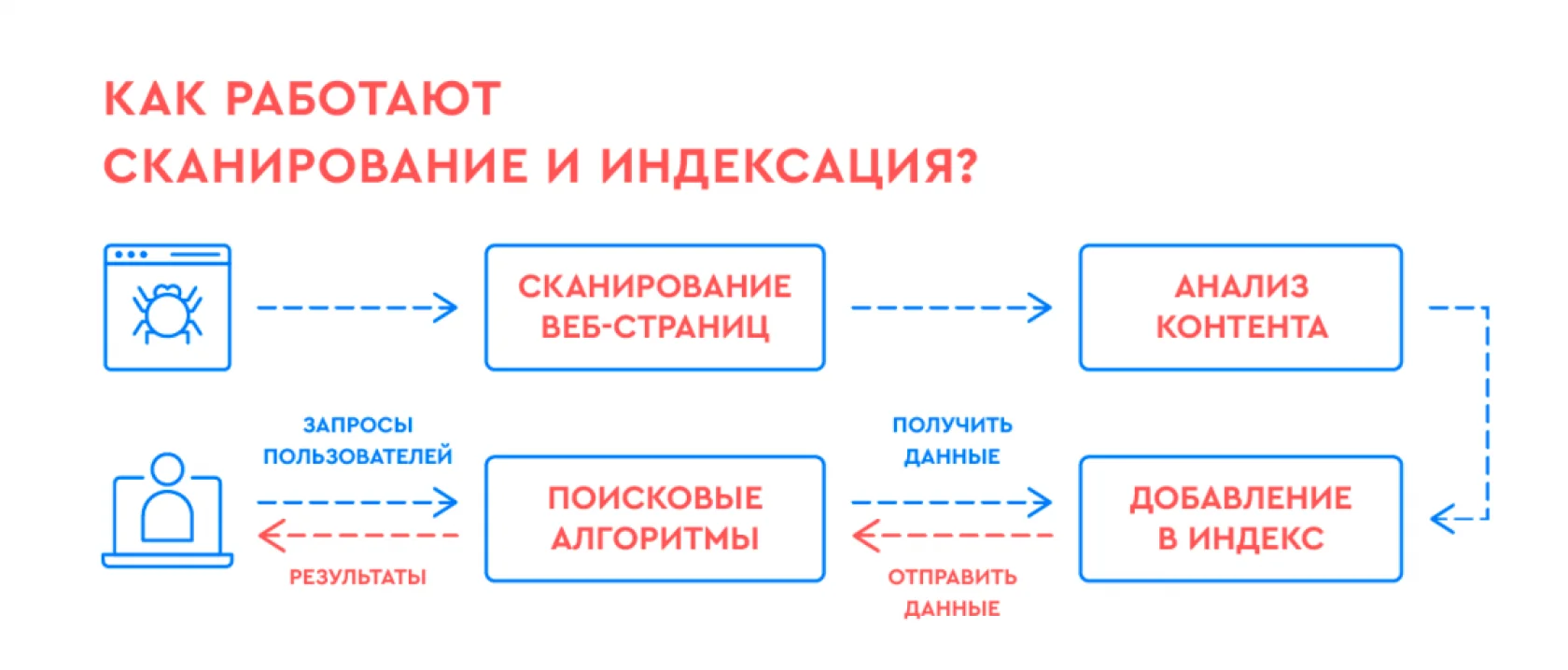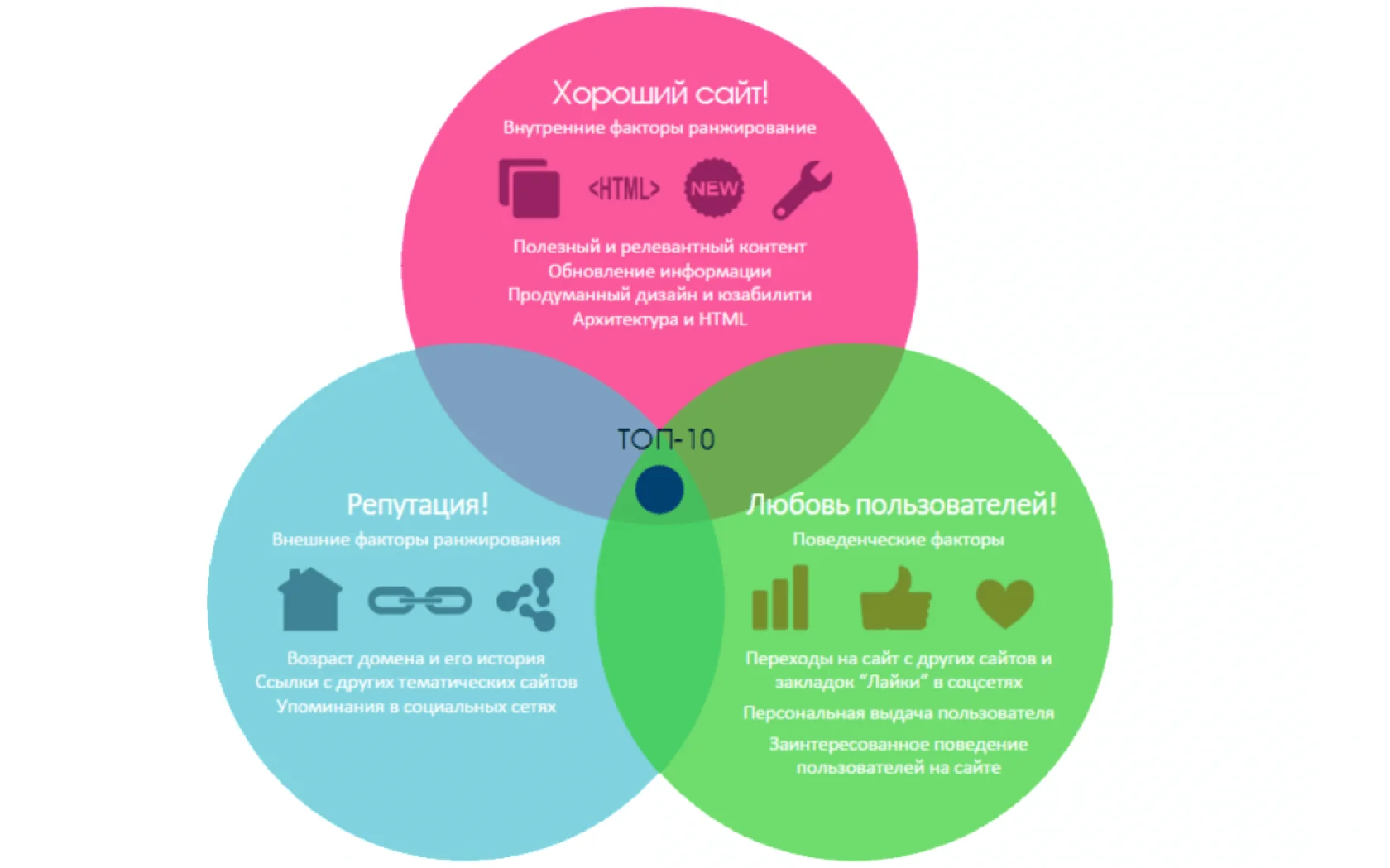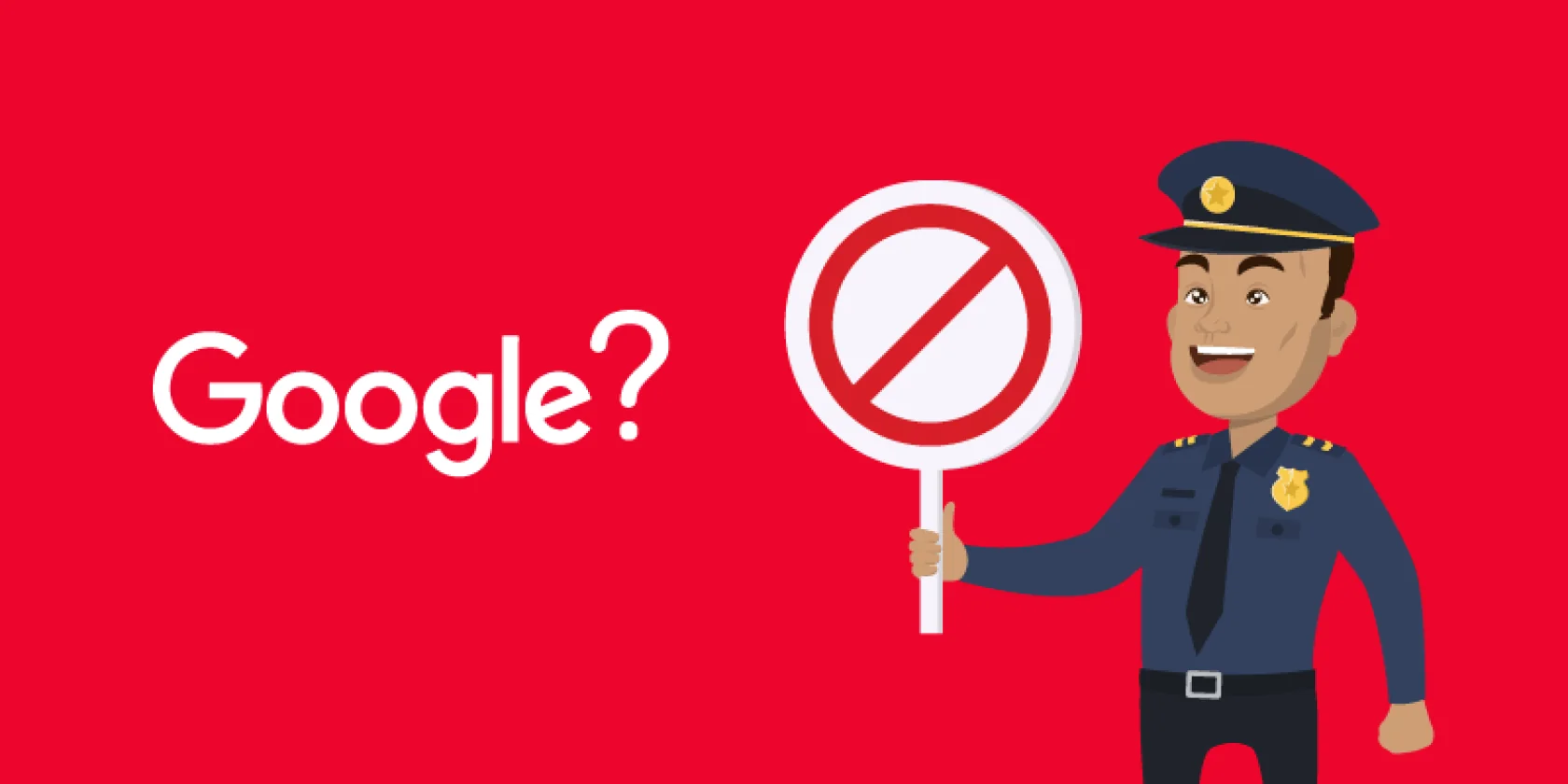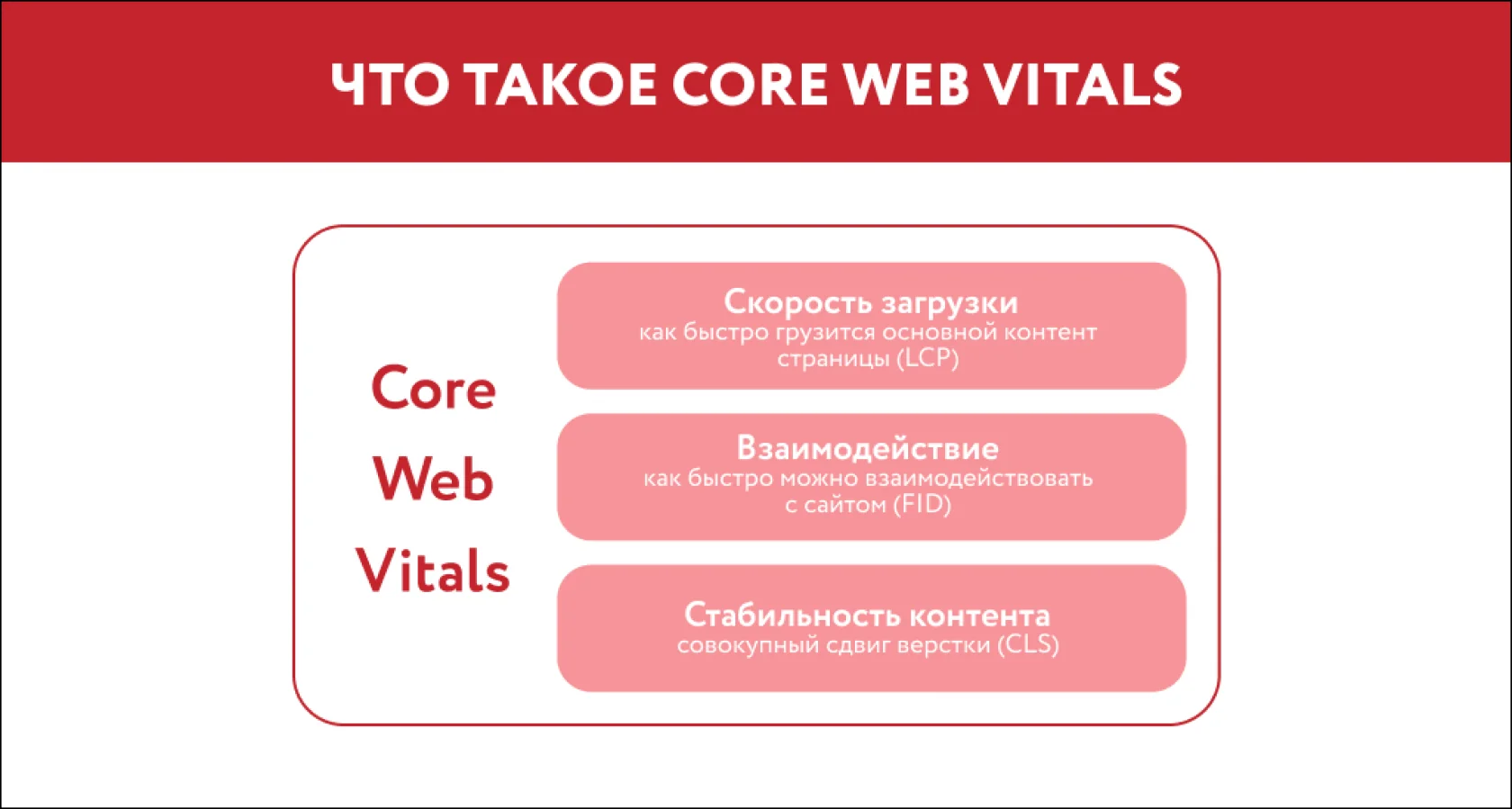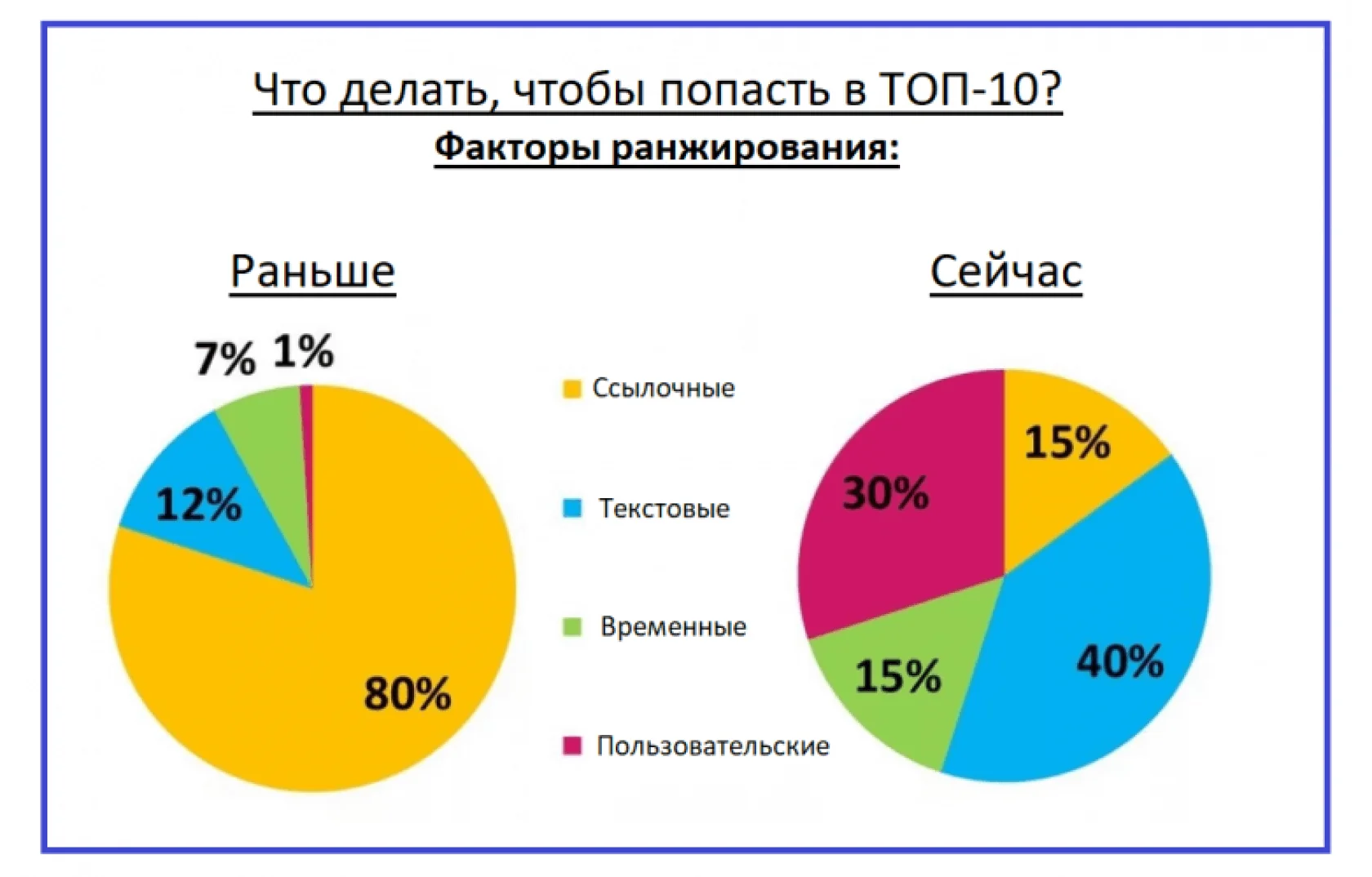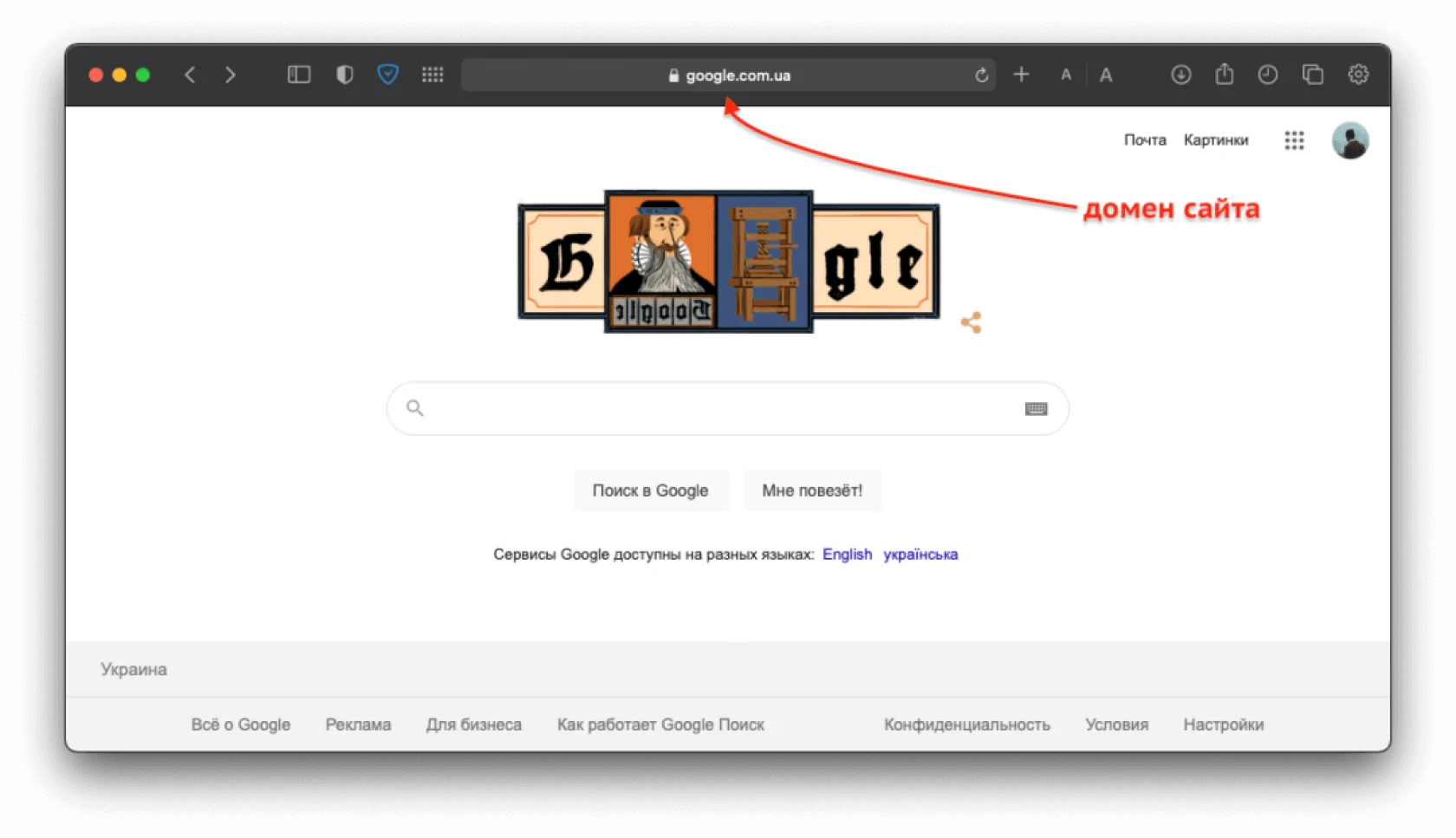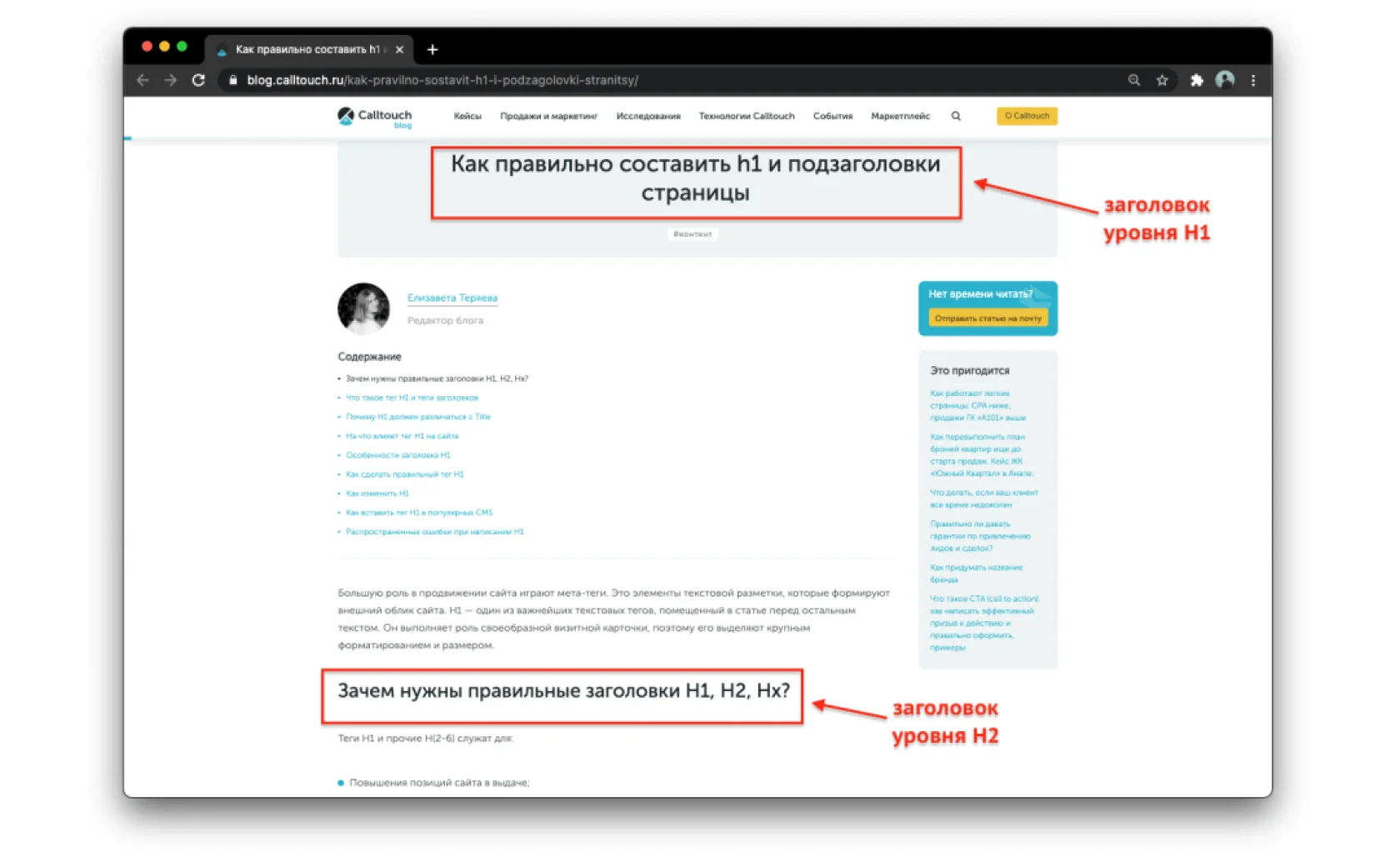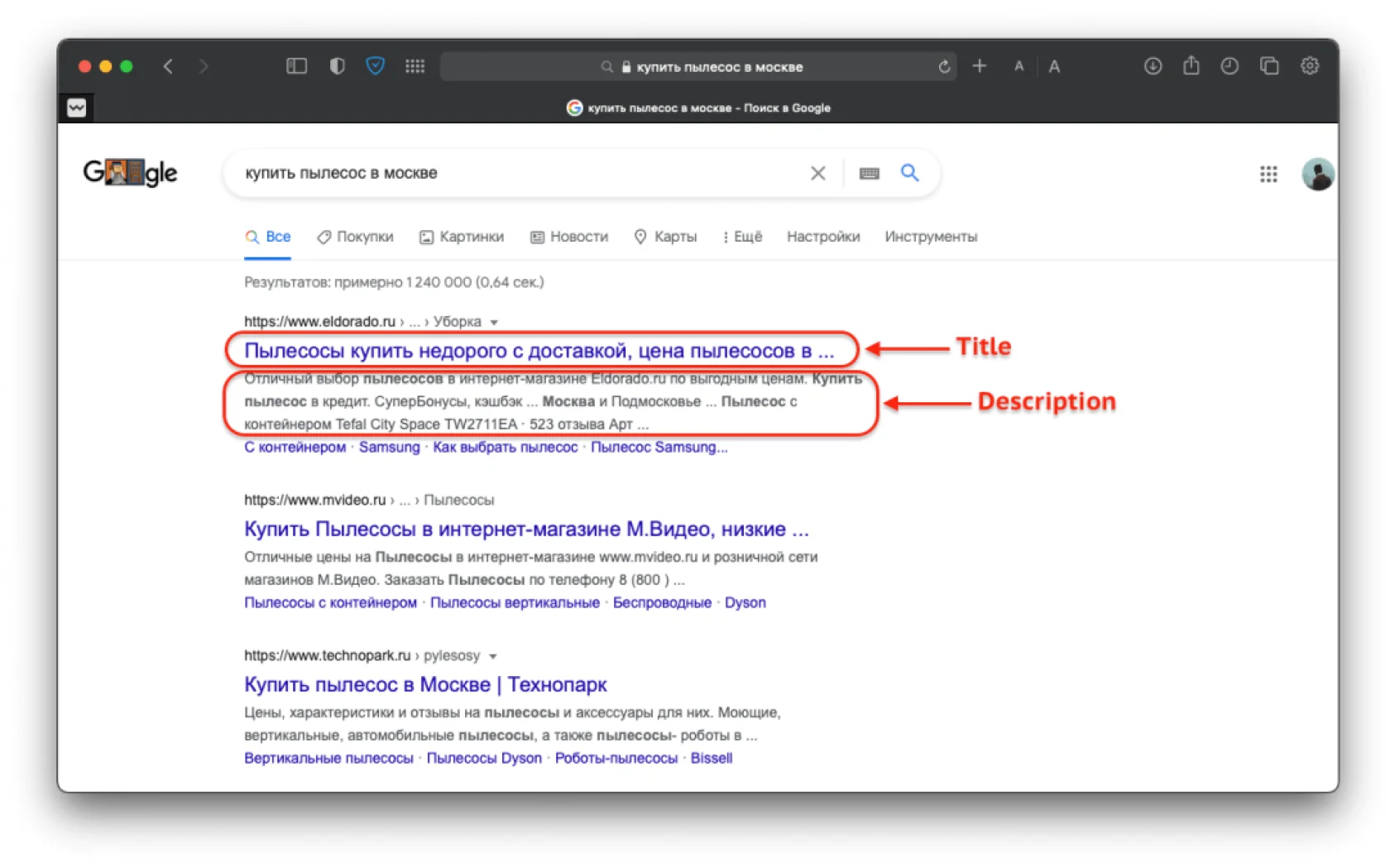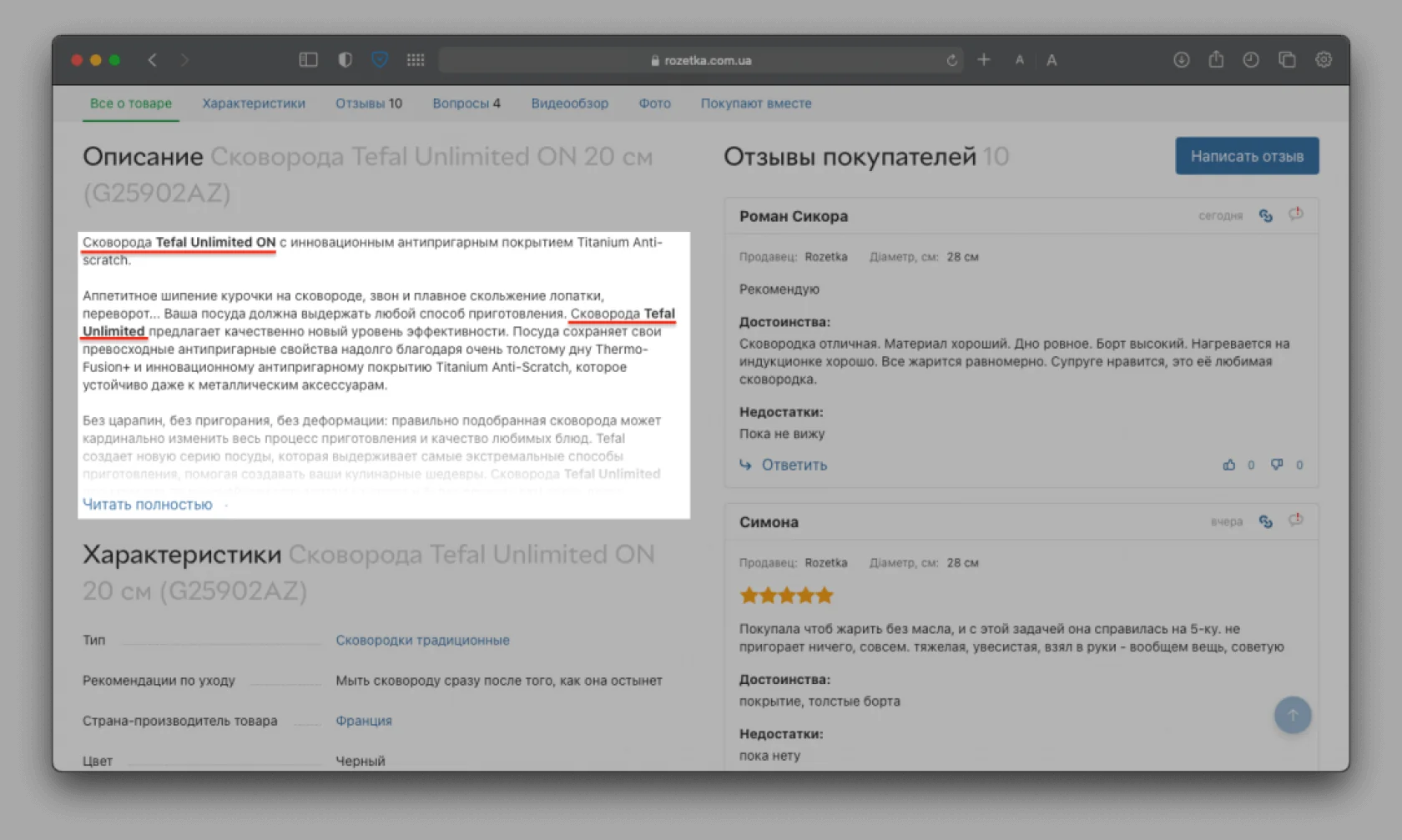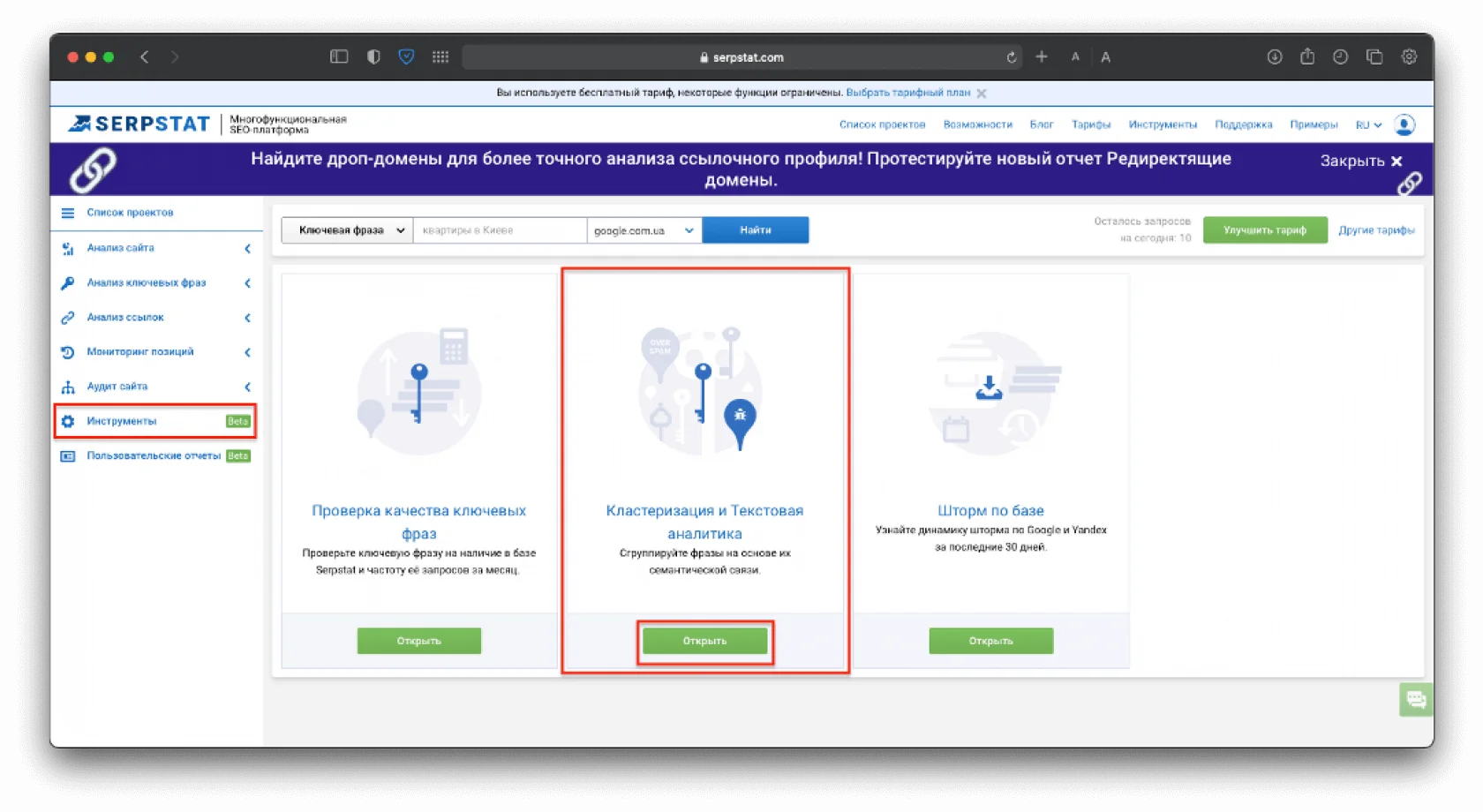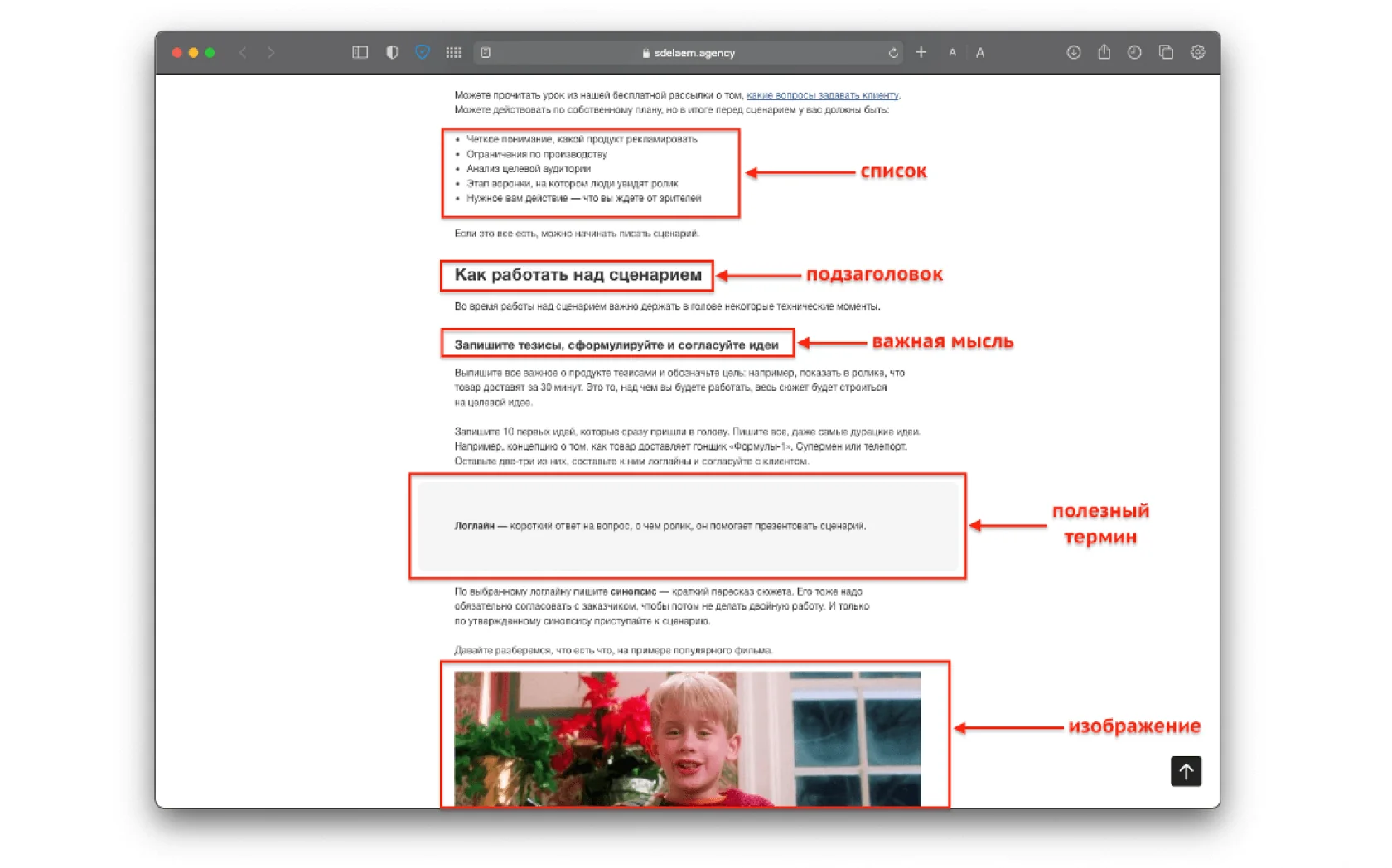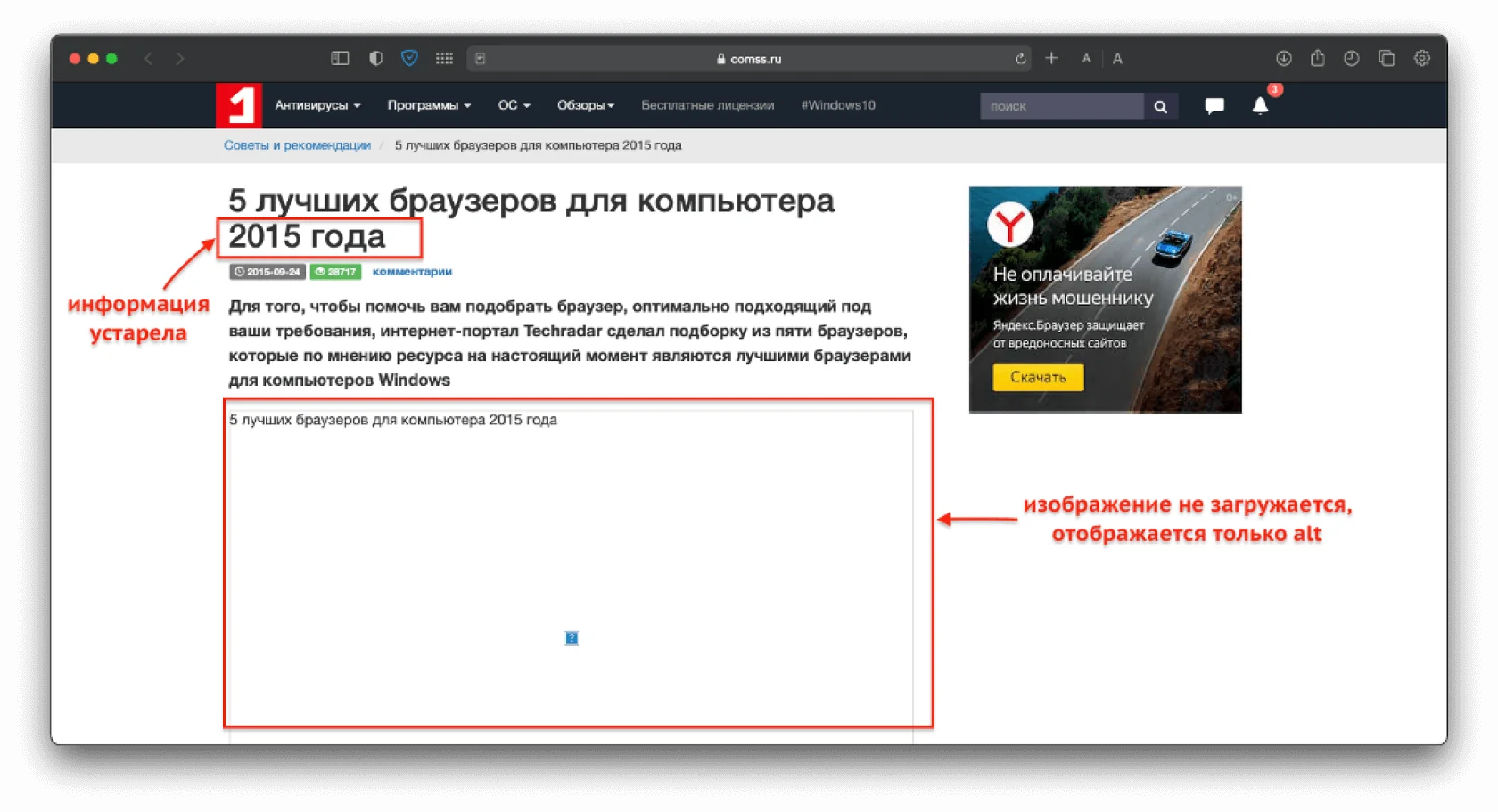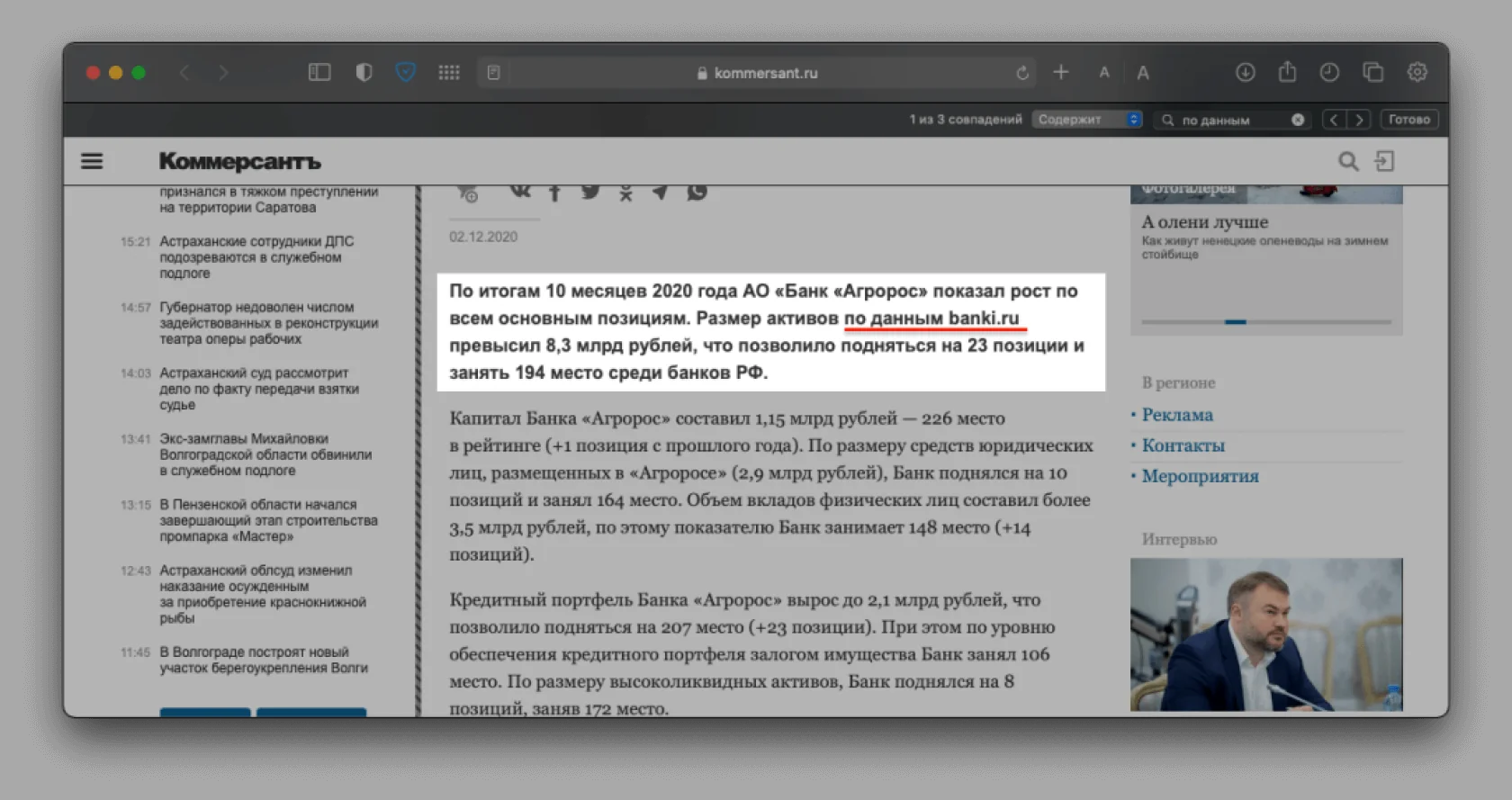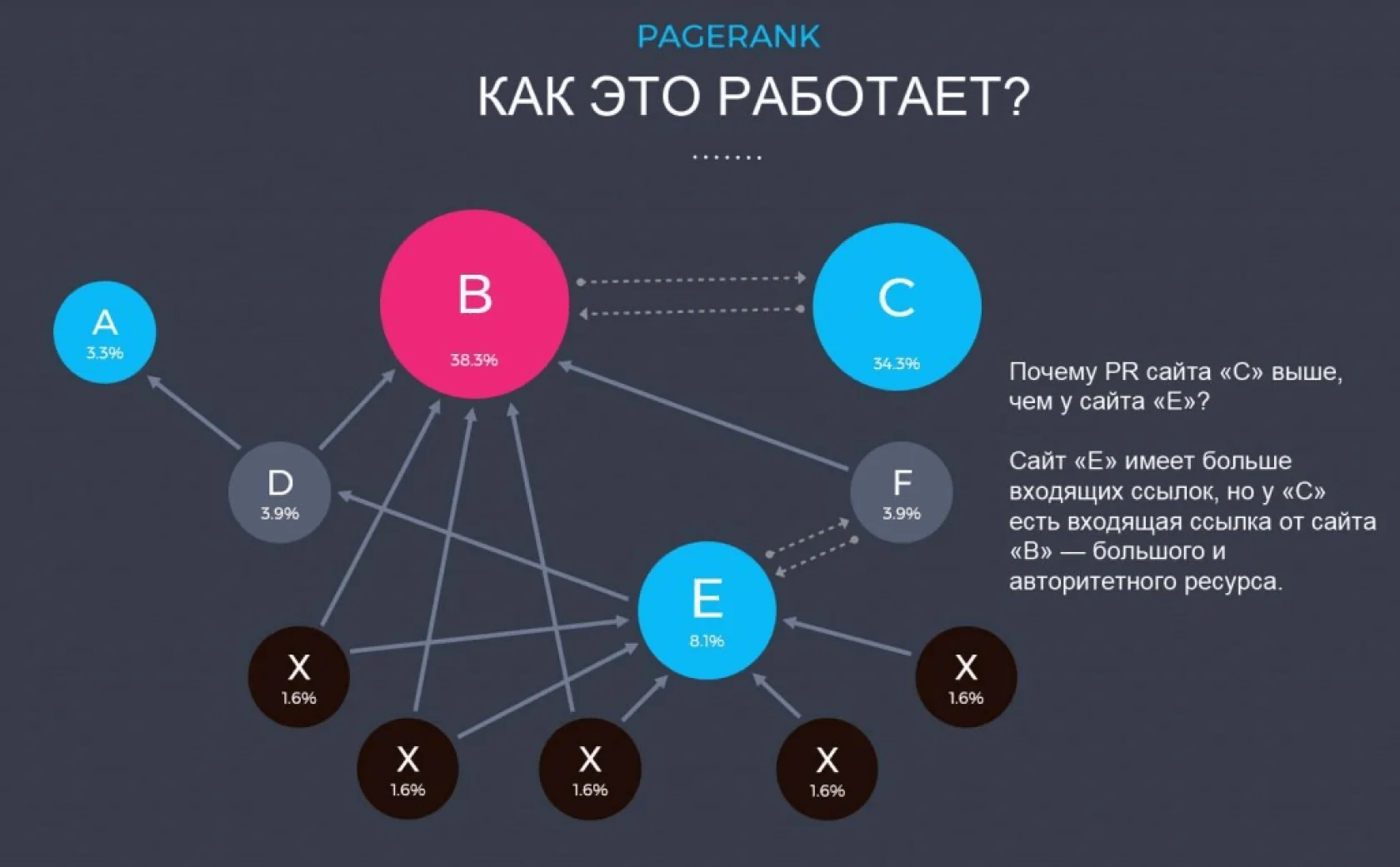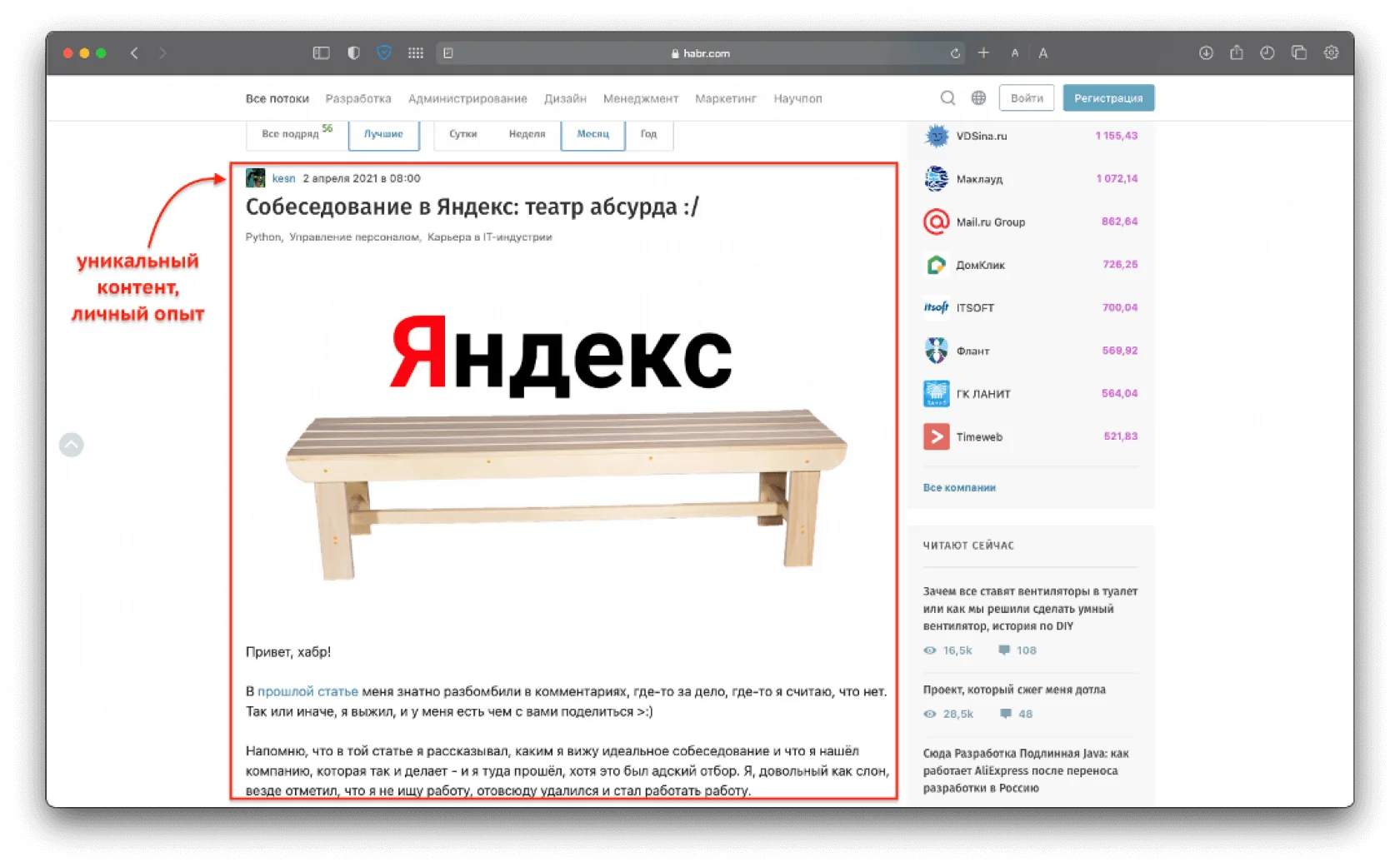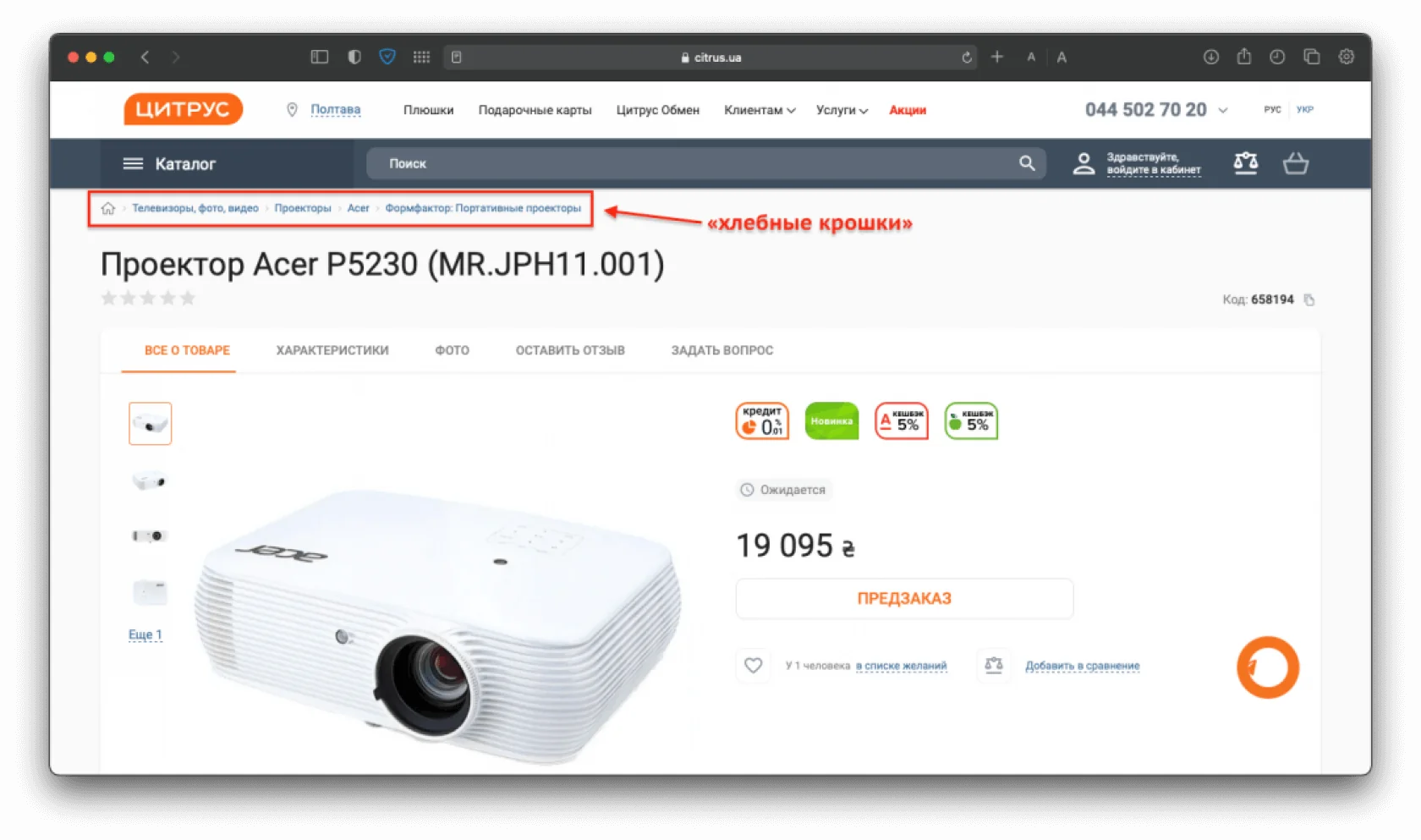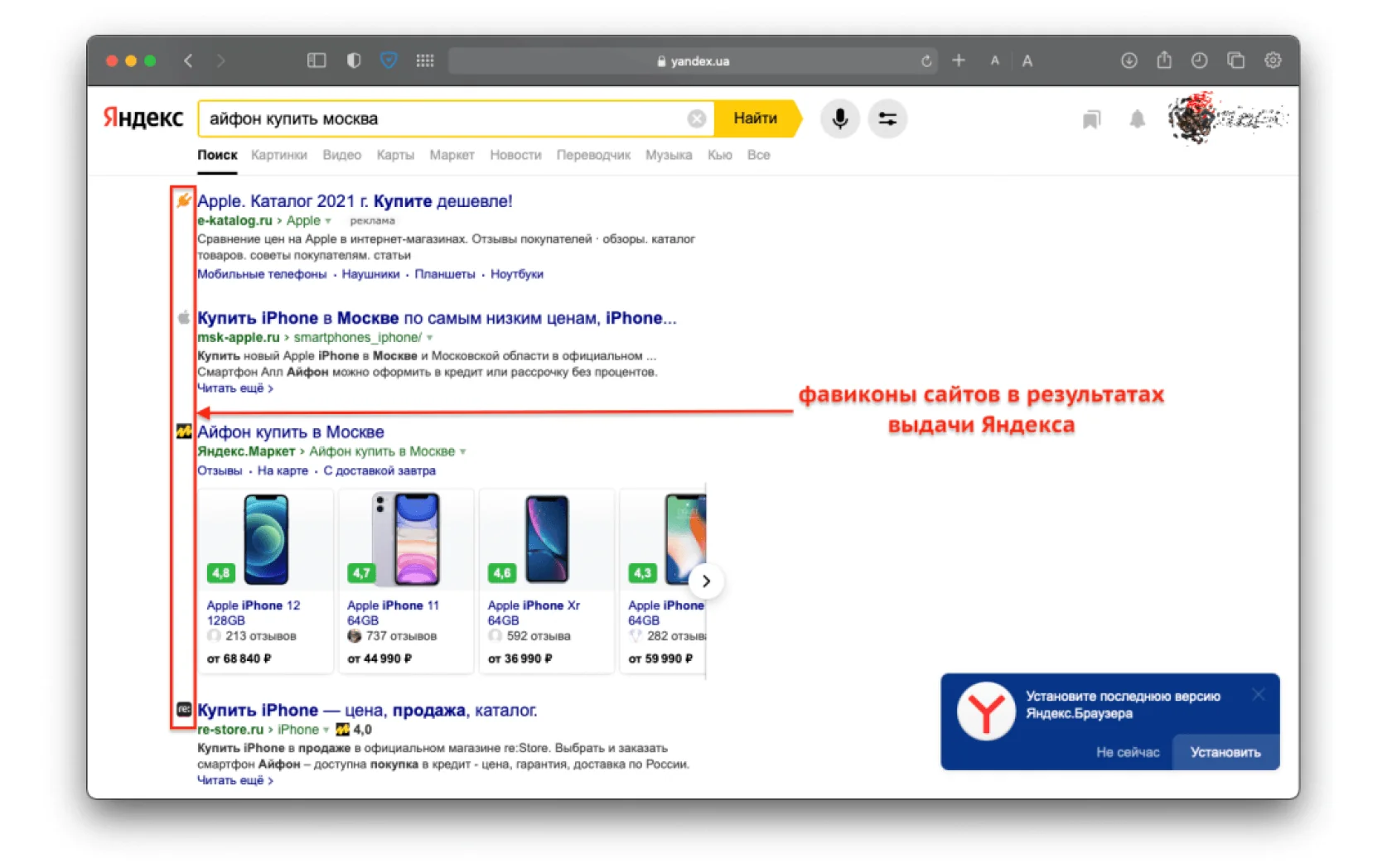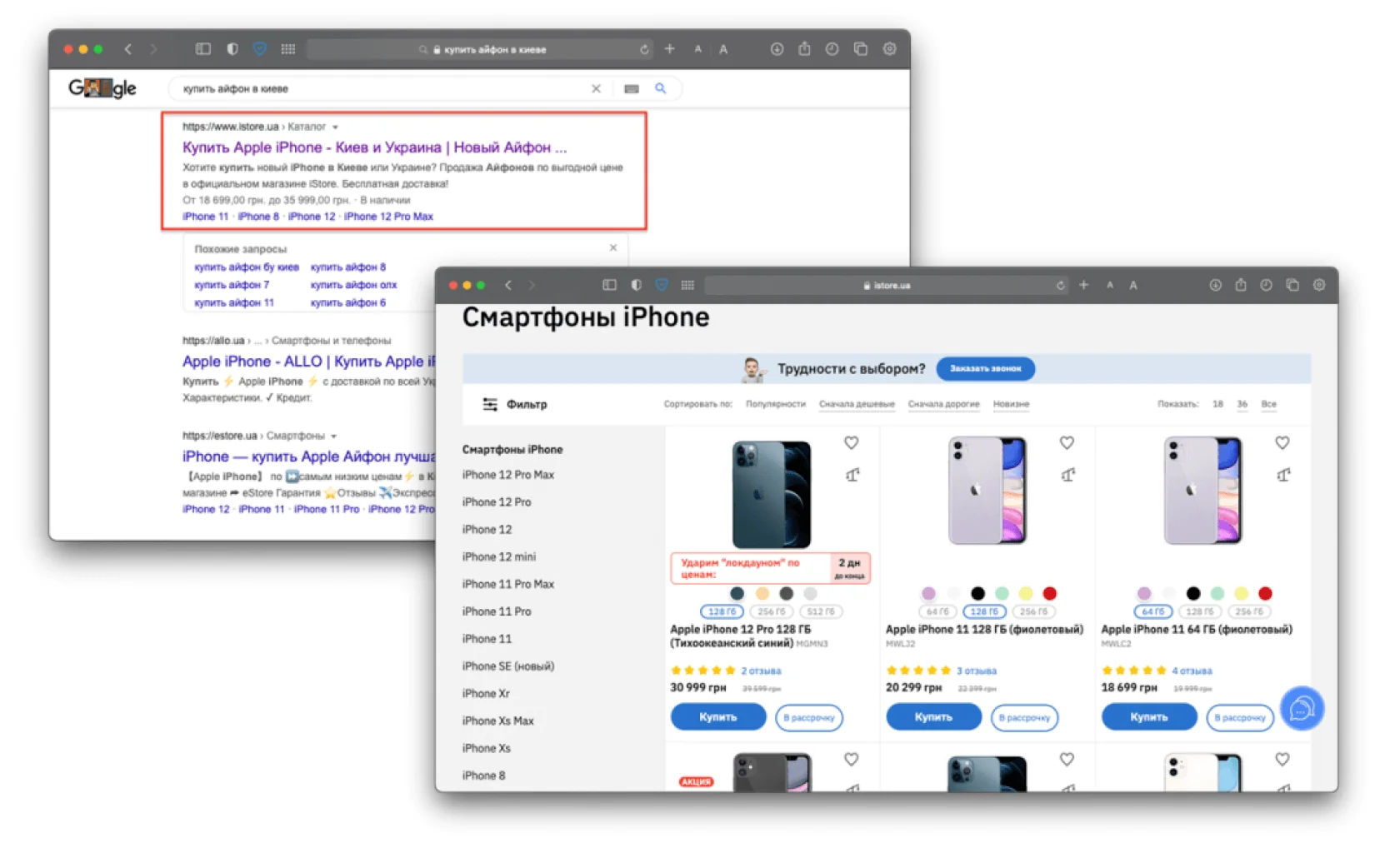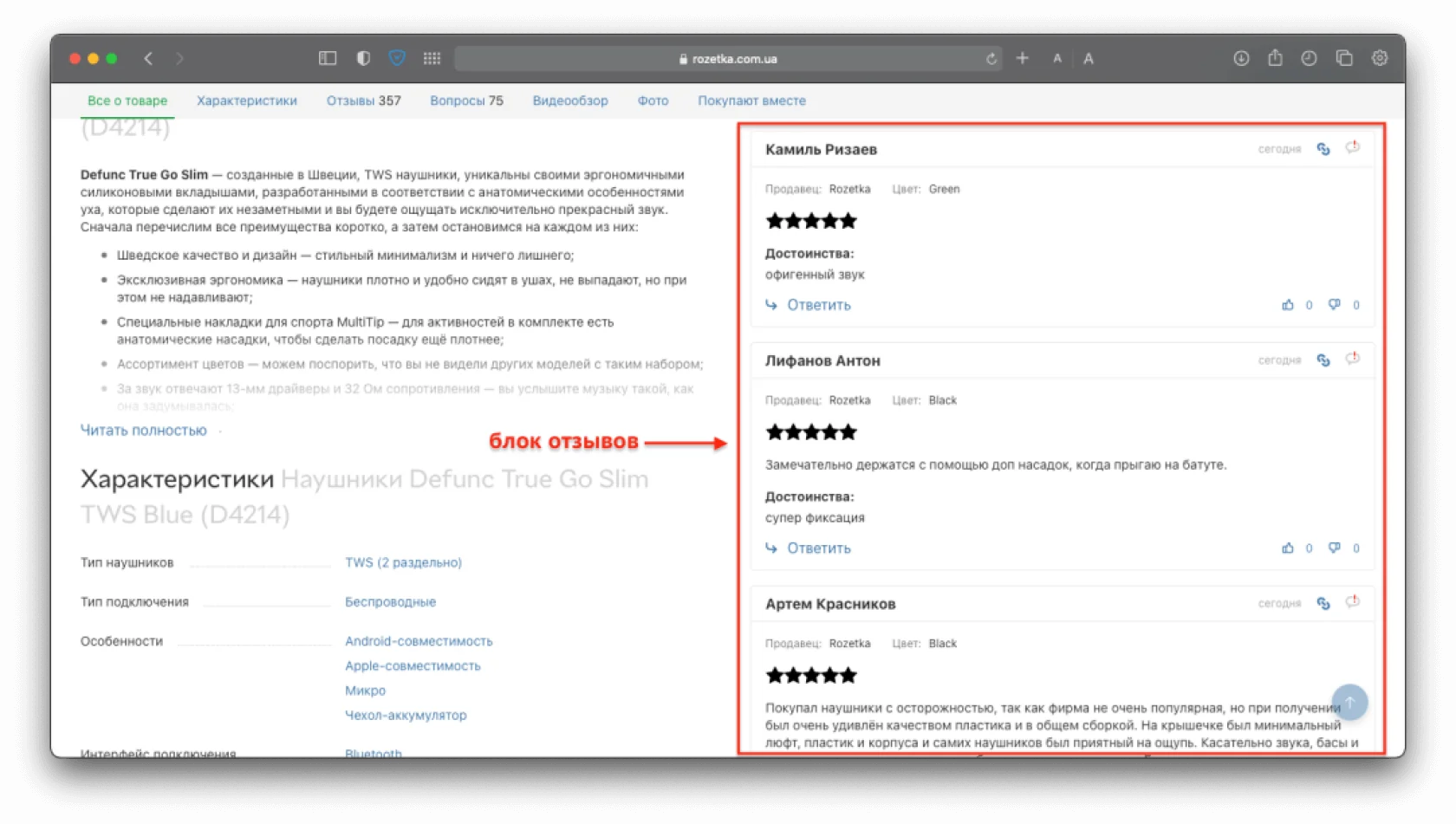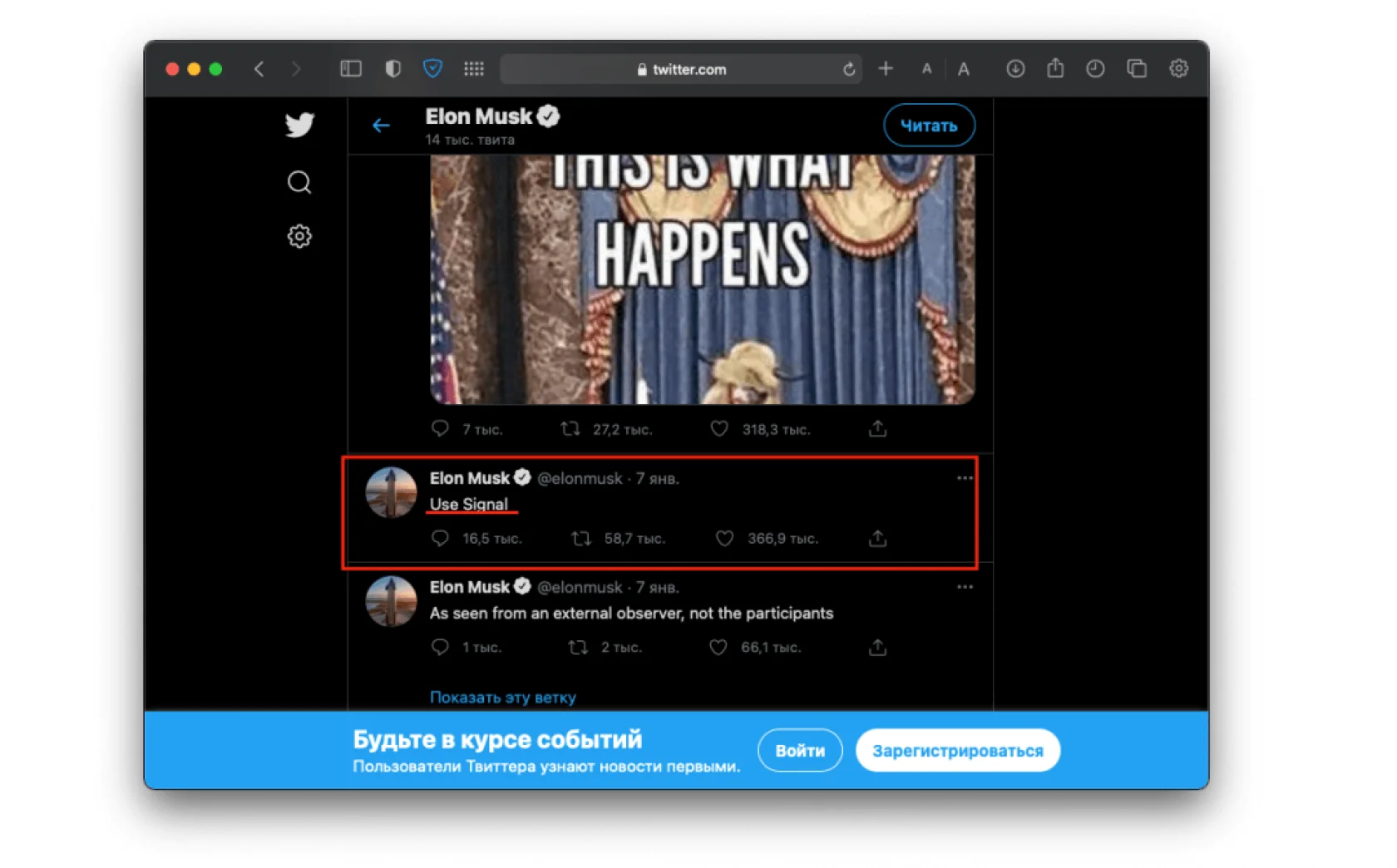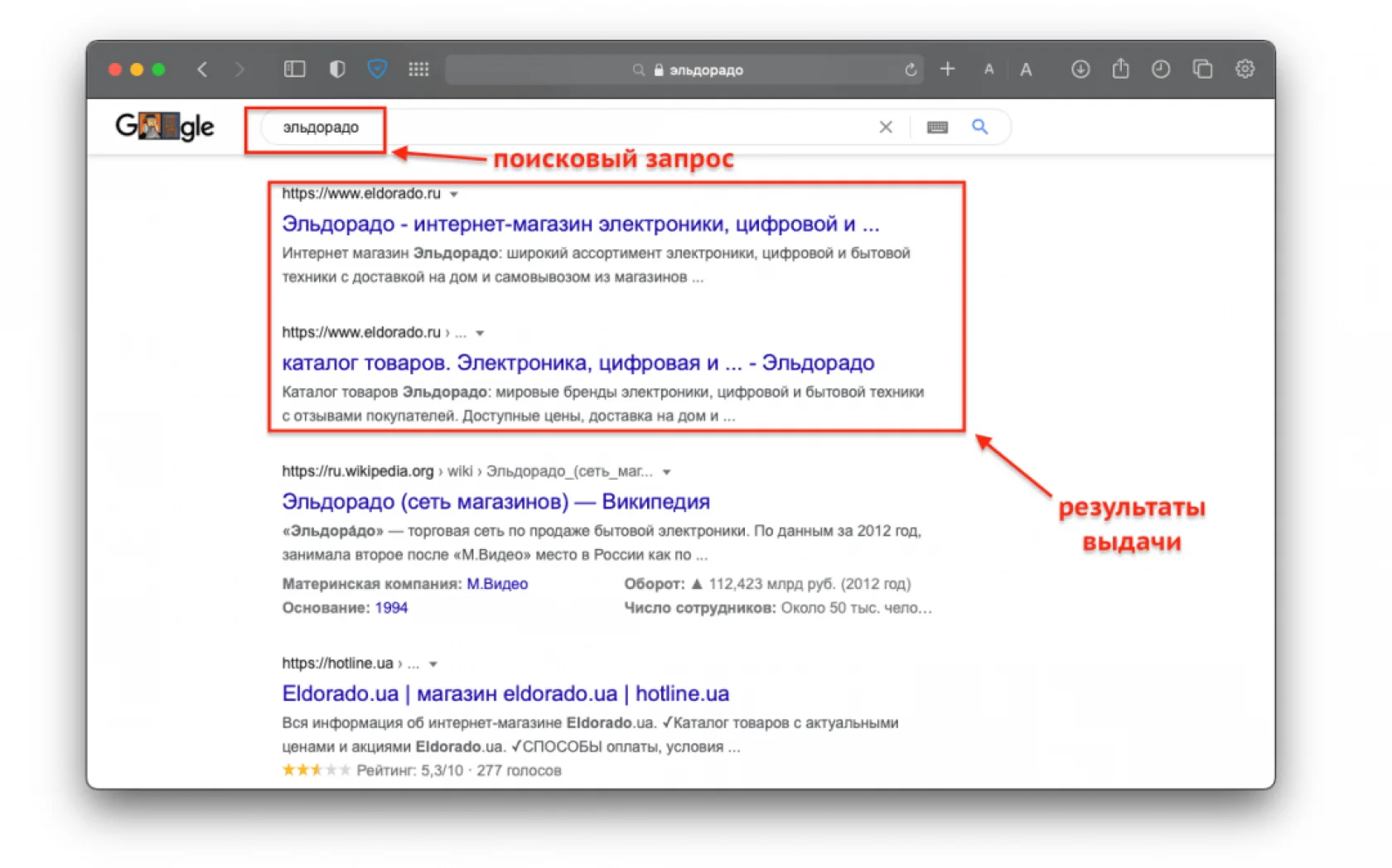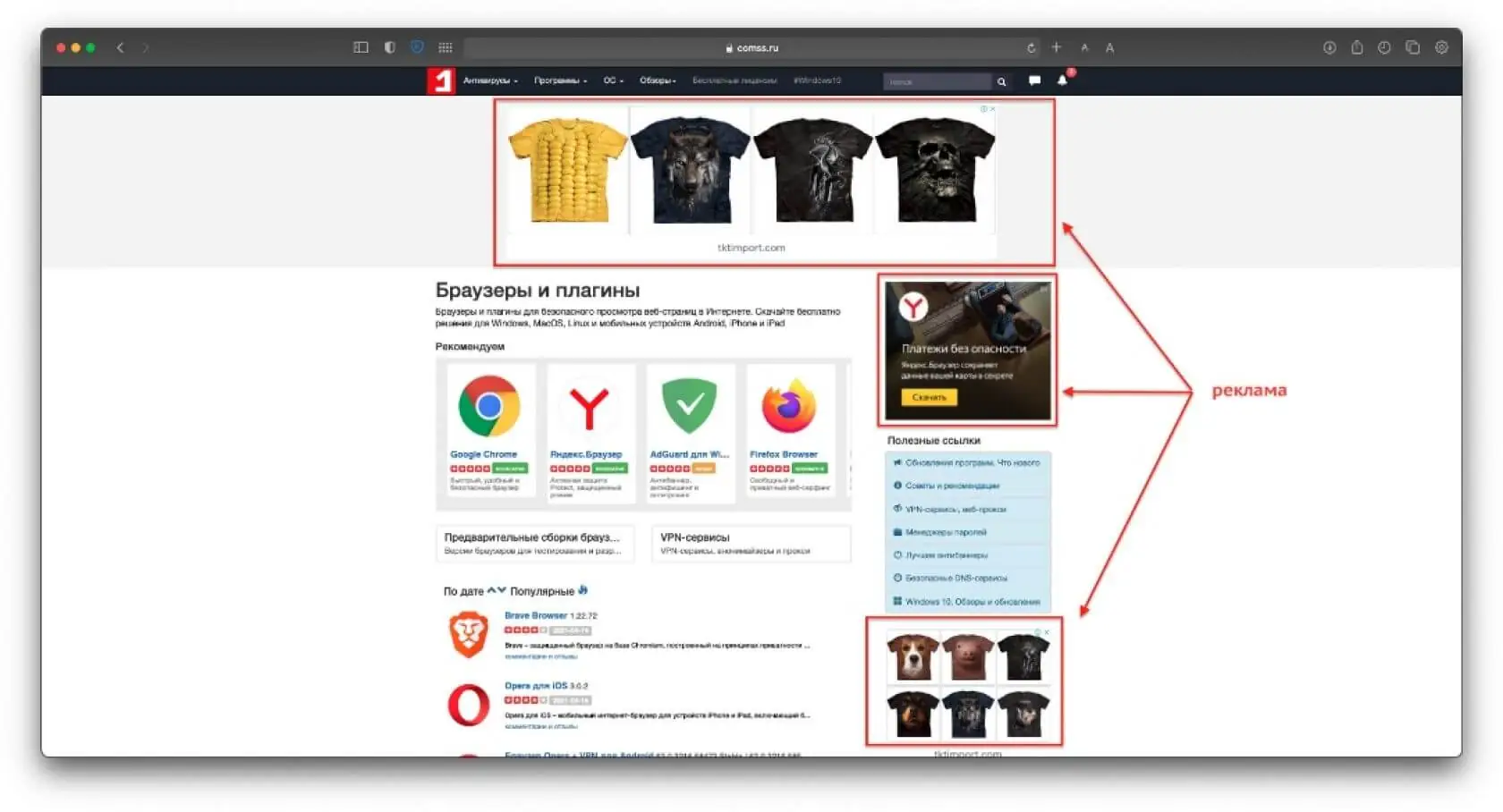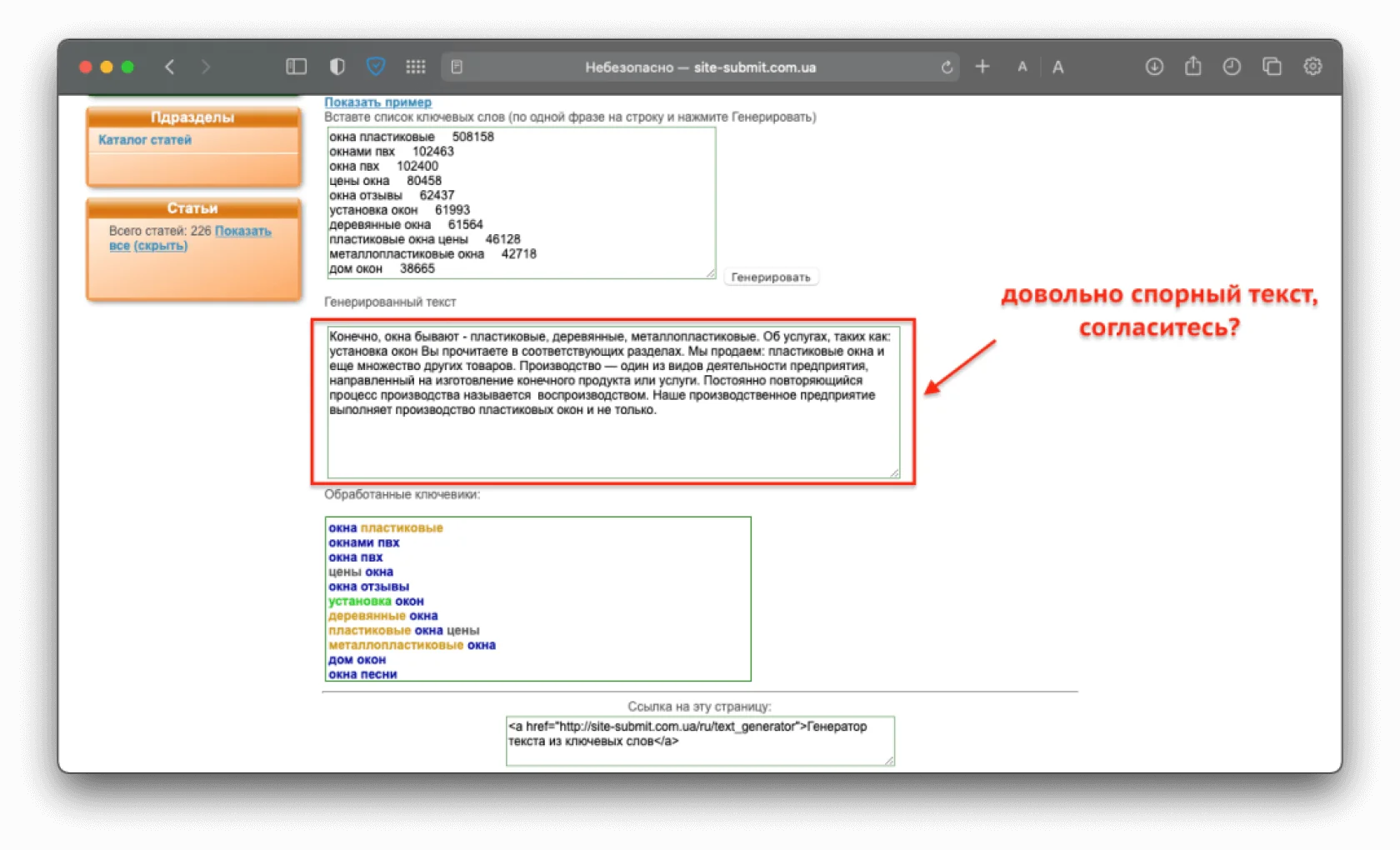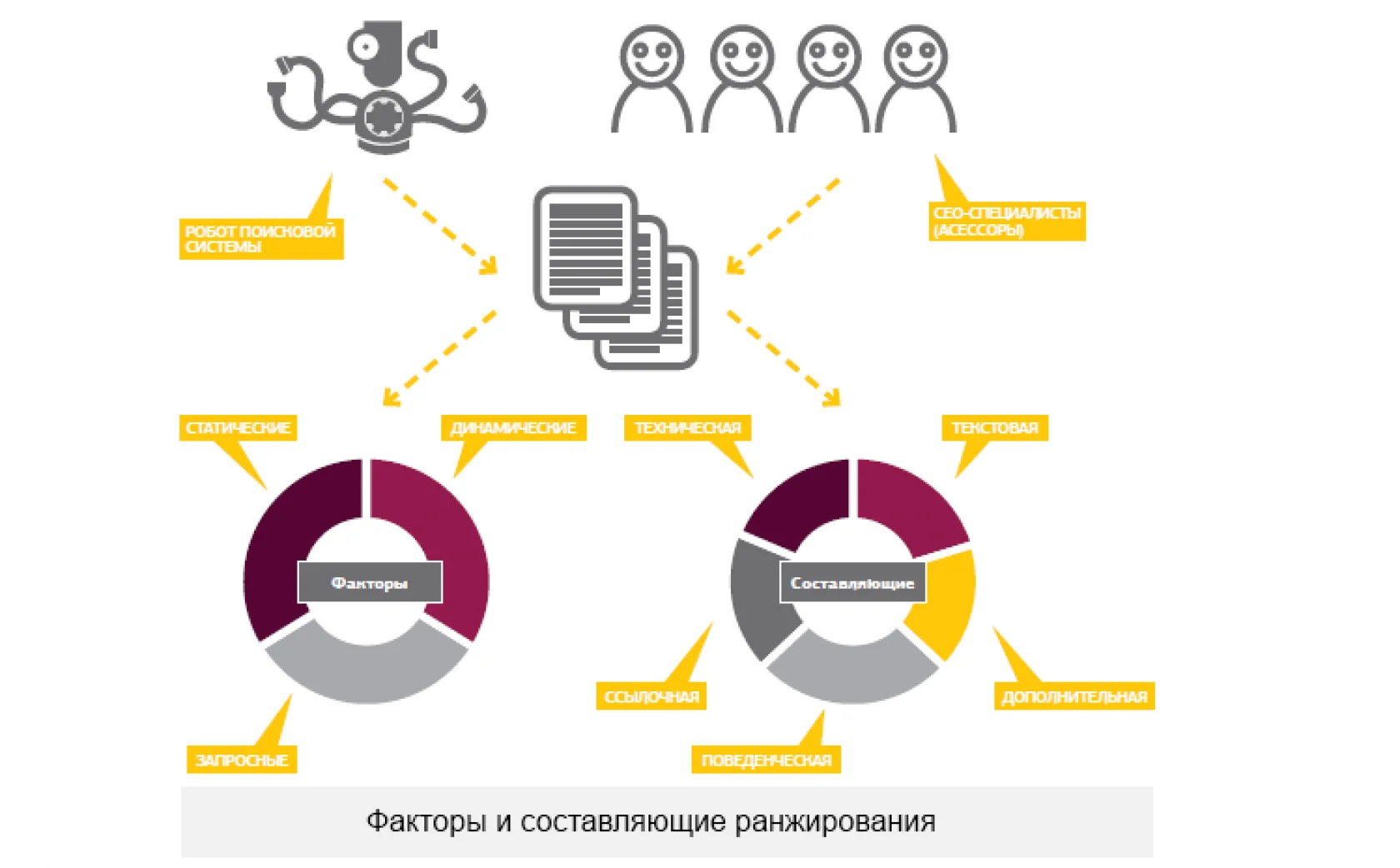Site ranking
Author - Constantin Nacul
How to make your product visible on the Internet? Creating a website and filling it with content is not enough. It is necessary to carry out a set of measures that affect the ranking of the site, bring it to the top of the search results for key queries, and most importantly, bring the target audience to your resource.
From this article you will learn:
- what is ranking (site);
- search engines rank web resources and why their algorithms are constantly changing;
- what ranking factors should be considered in the first place and much more.
We will analyze specific ranking mechanisms, give examples and show how to improve the position of your resource in the search results. So, let's begin!
- What are search ranking algorithms?
- How search engines rank websites
- Google Search Ranking Principles
- Domain ranking factors
- Content Ranking Factors
- Whole site ranking factors
- Link Ranking Factors
- Behavioral ranking factors
- Social ranking factors
- Brand Ranking Factors
- Content Spam Factors
- Link Spam Factors
- How to increase website ranking
- Сonclusions
- FAQ
What are search ranking algorithms?
Ranking algorithms are methods for filtering the results of user queries in search engines that determine the order in which sites appear in the search results of Google and other search engines.
In simple terms, ranking is a set of rules, the observance of which brings your site to the top and raises it above the resources of competitors. Therefore, in order to be in the top 3 or at least in the top 10 search results, these factors need to be taken into account, optimized and ensure the maximum relevance of pages to search queries.
Analysis of the relevance of a web resource is carried out according to three basic criteria:
- The meaning and content of the pages - they must correspond to the user's request.
- Compliance of the site with the given search engine algorithms and the absence of so-called black optimization tools.
- Link ranking, taking into account the number and quality of transitions to the site from other web resources.
- Many people confuse the terms “ranking” and “indexing”. There is a huge difference between them.
What is indexing?
Site indexing is the “reading” of its pages by search robots, in which the search engine retrieves and saves the data it needs about their composition. Indexing is an integral part of ranking, but not synonymous with it!
You can divide the indexing process into several stages:
- Sending a query to a search engine.
- Reading your site.
- Filtering and clustering data.
- Fixing the results of indexing in the database of the search engine.
Note! Indexing is not a one-time process. Search engines periodically re-index to keep information up to date.
As a rule, search engines perform indexing automatically if the site or individual pages are not closed from indexing by the webmaster. But you can speed up this process and manually submit the site to search engines.
What is ranking?
Ranking in search engines is the direct sorting of sites in the list of results of Google and other search engines, based, among other things, on indexing results.
The ranking process looks like this:
- Sending a search query.
- "Understanding" of this request by the system.
- Retrieve relevant search results.
- Filtering results, eliminating duplicates and irrelevant pages.
- Sorting according to the internal algorithms of the search engine and displaying the final list of sites on the search results page.
That is, indexing and ranking are interrelated, but by no means interchangeable processes. Indexing is the analysis of the site. And ranking is the assignment of a certain rank to it, on which it depends on what position in the search results it will be for key queries.
How search engines rank websites
There are dozens of site ranking criteria that have been relevant for more than a year:
- Commercial Links. The more external sites link to your resource, the higher the confidence of the search engine in it. But with a caveat: since 2020, Google has learned to identify "artificial" and spam links. Their excess is a direct path to serious pessimization in rankings.
- Site age. The official position of Google is that the age of a domain does not affect the ranking of a web resource in any way. But in practice, new sites are moving significantly worse.
- Content type and quality. Blog posts, product cards, categories, and landing pages rank differently. High-quality, unique and relevant content contributes to the growth of the site's position. Conversely, "stub texts" and non-unique images lower rankings. And in some situations, they can completely drive the resource under search filters, getting out from under which is a difficult and dreary task.
And this is only a tiny part of the ranking factors. We will tell you more about how the ranking works and what you need to pay special attention to later in the article.
As we said above, site ranking algorithms and criteria are constantly changing and improving. So, in 2021, Google introduced new quality assessment factors - Core Web Vitals.
There are more than ten of these factors, but there are three most important:
- The speed of rendering the main content on the page.
- The minimum wait time before the first interaction with the content.
- The visual stability of the content and the absence of any obstacles to interact with it.
That is, now the priority is sites that render faster, look correct and with which the user can begin to interact faster.
Google Search Ranking Principles
There is no single list of search engine ranking factors. Moreover, in different search engines they differ. Accordingly, there are hundreds of them. And if you delve into the issue and try to decompose these factors into separate components, then there are thousands. Therefore, you can list them endlessly. And given the constant change in algorithms, this list will become obsolete faster than we have time to compile it.
Take a look at how much ranking factors have changed over the past few years:
There is a list of internal and external ranking factors that are basic and relevant. It is on them that we propose to stop.
Domain ranking factors
A domain is the first thing that can tell a search robot about your site. It also plays an important role in the ranking process. A lot of parameters are taken into account - from the age of the domain to the list of sanctions that may have already been applied to it.
Site (domain) age
As we wrote above, the older the domain, the better for resource ranking. Although Google continues to deny it.
Domain renewal period
If the domain is renewed for a year or more, this increases the confidence of search engines in it. Conversely, an extension of just a month may indicate that the site is fraudulent and will soon “collapse”.
Domain history
Regular change of the owner of the domain or its long-term release can cause a deterioration in the position of the site.
Hiding WHOIS data
If the contact and technical information about the registered owner of the domain names is hidden, this can also negatively affect the ranking of the site in the search engine. But with a caveat: in the .ru zone, this information is hidden by default.
Domain zone
A domain zone, on the one hand, improves the position of a site within a country or region, but on the other hand, worsens them in the global ranking. That is, if your resource is located in the .ua domain zone, you should not expect it to be in the top search results for Russia or Belarus. And vice versa.
Sanctions applied to the domain
This is especially interesting. For example, you purchased a dozen domains, after which several of them fell under sanctions. There is a high probability that other sites will also fall out of the search.
Content Ranking Factors
Content is everything! Its role in ranking in search engines is difficult to overestimate. And now we are talking not only about the quality of texts or the uniqueness of images on the pages of the site.
Titles
The page must have headings of several levels - H1, H2, H3 and so on. You can limit yourself to only H1-H3 levels, but if the content allows, you should use lower levels as well. Plus, don't forget about the page title, title, etc.
Having a Meta Description
Description is a short description of the page that appears in the search results.
Keyword citation frequency
If the main keyword is quoted on the page more often than others, this is a plus for ranking. And vice versa, if it is crowded out by other "keywords", this may worsen the position of the resource.
Content Volume
It is believed that voluminous and informative text contributes to the growth of the site's position in search results. Many SEO experts recommend adding at least 2,000 words of text to your pages. However, firstly, not only the volume is important, but also the quality of the content. And secondly, not all pages are suitable for such "long reads".
The number of keywords on the page (in particular, at the beginning of the page)
Relevance is affected not only by the number of keywords and phrases, but also by their location in the text. We recommend placing them more at the beginning.
The presence of synonyms for keywords and phrases in headings and in the text
We are talking about LSI (Latent Semantic Indexing) - words and phrases that are semantically related to the main "keyword", but do not duplicate it. Although LSI is not only synonyms, but also any words and phrases that logically relate to the main query. For example, in a text with the main key phrase “buy an iPhone in Kyiv”, it would be useful to use the LSI words “Apple”, “smartphone”, “online store”, “Kyiv” and others.
The presence of different keywords on the same page
Associated relevant keywords and phrases also affect how rankings are performed. They can either improve the position of the site, complementing the main search query, or worsen them. Therefore, it is very important to correctly segment the semantic core, and not to “throw” keywords blindly.
To automatically divide similar requests into groups, you can use the SerpStat service by selecting the menu item "Tools" - "Clustering and Text Analytics".
Lists, tables, selections, other
Well-structured text with lists and tables not only improves the user experience, but also contributes to a more effective ranking of the site in Google and other search engines.
User friendliness of the page
Micro-markup, metadata, tags - all this is also important for ranking. Search engines "love" user-friendly sites.
Content uniqueness (texts, images)
Your content must be unique, period! Texts, headings, images, link attributes, image alts, and so on. Non-unique content can send your site under search filters faster than you fill it completely.
rel=canonical links
Canonical URLs are addresses that are indexed when there are duplicate pages on the site. In order for the indexing to work correctly, you need to manually designate canonical pages by adding the rel=canonical attribute to the tag.
Website update frequency
If you update your site regularly, it will "motivate" search engines to index it more often. Conversely, if the resource has not been updated for a long time, its indexing occurs less frequently.
Regular updating and updating of pages
Any information is outdated. Update and update it - this also contributes to the ranking of the site.
Note: Old pages updated and updated with fresh information (if they are relevant to the old text and URL) have a much higher ranking weight than new ones. So it's usually wiser to update them rather than build them from scratch.
Page age
In this regard, it is difficult to unambiguously assess how ranking algorithms work. On the one hand, search engines “love” new and relevant content. On the other hand, older pages often rank better.
Different wording of keywords
Again, everything here is also ambiguous. Using only a direct entry (for example, “buy an iPhone in Kyiv”) contributes to the fact that the position of the site in the search results for this particular query will grow. But at the same time, other wordings (for example, “iPhone is inexpensive in Kyiv”) help the search engine better “understand” what your page is about.
Links to authoritative resources
Many talk about the importance of external links leading to your resource, forgetting about outgoing links. And they are important too. By linking to authoritative sites, you automatically increase the level of trust of search engines in your site.
Note: The link must be set to nofollow. These are hyperlinks with the rel attribute set to "nofollow".
Number of outgoing links
Do not overdo it. Outgoing links are important, but within reasonable limits - they should not distract the user from the main content and, more importantly, take him to third-party resources.
Presence of broken links
Broken links are a direct signal to the search engine that the site is not working well enough. Therefore, ranking in search engines cannot be effective.
Multimedia per page
Videos, images, animations, various graphics (including animated ones) and the like are important. These elements can improve the behavioral factors of site visitors, and those, in turn, have a positive effect on ranking.
Readability and informativeness of the text
There is no need to try to complicate the text content with complex terminology, huge tables, formulas, etc. It should be clear and easy to understand. But you should not post too primitive texts. We need a "golden mean".
Errors in the text
Lyrics are bad. Firstly, they worsen the perception of information by users and reduce the level of trust in your site. And secondly, search engines have already learned to “notice” them and use them as a site ranking criterion.
Page category
It is important to understand the page hierarchy correctly here. Pages in one category will be more relevant to the "keywords" of that category. And pages without a category are less relevant.
URL length
Search engines don't like long URLs too much. So try to keep them as short as possible. But without fanaticism. The address should be readable and moderately informative.
Note: do not put a date in the URL, because after a year, search engines will simply stop reading it, considering it irrelevant. But in the headings of the H1 level, you can put the year / month. Subsequently, you can update the information and update it at any time. You can't update the date in the URL.
Keywords in URL
Keywords directly in the URL also affect search engine rankings. They work on the same principle as keywords in headlines.
PageRank
PageRank is a Google algorithm that determines how important a page on a website is among others. The higher the PageRank, the more likely it is to rank at the top of the search results.
Web Resource HTML Validity
It is impossible to say with absolute certainty that the validity of HTML directly affects the ranking of the site, but the likelihood of this is high. You can check the validity at validator.w3.org, but the check is available only after registration.
Download speed
Everything is simple here. The faster the page loads, the better. You can speed up loading in many ways: by reducing the size of the code, reducing the resolution of images, using more modern formats, and so on. If the page takes more than 2-3 seconds to load, it's time to start optimizing.
Whole site ranking factors
Search engines in the process of ranking evaluate not only each individual page, but the entire site as a whole. Basic requirements: simplicity and convenience, usefulness and compliance with user expectations. If we consider the ranking mechanisms of the entire site separately, we can name a few basic ones.
New and valuable information for the user
Even among the top resources, there is a huge amount of repetitive information that “roams” from site to site - rewrites of other people's texts and hastily unique images. Every year, search engines recognize borrowed content better and prefer only new relevant information.
Site structure
The better your web resource is structured, the better it will be indexed, the ranking process will speed up, and the results will improve. Plus, structuring makes pages more understandable and user-friendly. And improving behavioral factors is an important indicator for promotion.
Number of site pages in search
The rule is simple: the more landing pages, the better for ranking.
Availability of a sitemap
A sitemap is one of the webmaster's key tools. It also helps search engines find and index individual pages faster.
Site uptime
Regular "falls" of the site and a long restoration of normal operation negatively affect the ranking. It is not even worth waiting for him to reach the top.
Geographic location of the server
If the server is far away, the site loading speed drops. In addition, this reduces the credibility of it - both on the part of search engines and on the part of users. Server location is especially important for geo-referenced rankings.
SSL security certificate
Sites with an SSL certificate by default rank much better than without it. Moreover, the lack of a certificate causes the browser to report that the site is not safe to use.
Website privacy policy
Not everyone agrees that this is an important factor in the ranking process. But still, many experts are inclined to believe that the presence of conditions / privacy policy increases the trust of search engines.
"Breadcrumbs"
These elements make the site easier to navigate by making the structure simpler and clearer. Ranking algorithms also take this into account.
Availability of YouTube videos on the site
Quite an interesting observation, but the presence on the site of a video from the YouTube platform increases the level of trust of search engines in it. This is especially true for Google, since YouTube is its service.
usability
The more convenient the site is for the end user and the less difficulties it causes in the process of interaction, the more effective the ranking is and the higher the resource rises to the top of the search results.
Reviews about the site on other resources
If your site is talked about on third-party sites, this is good for ranking. But it is not just the presence of reviews that is important, but also what kind of reviews they are. There are already known cases when a lot of negative reviews attracted the attention of search engines, after which sanctions are applied to the site.
Use of Google Analytics
This is not just a handy tool for a developer, SEO specialist, and site owner, but also an important site ranking factor. Thanks to him, search engines automatically receive more important information about the resource.
Favicon - site icon
Even such a trifle as a favicon can affect the ranking and increase the CTR of the site. For example, when users see an icon in search results, it can make your link stand out from the rest and generate interest. The number of visits to the site is growing, and search robots take this into account.
Link Ranking Factors
We emphasize once again that the more third-party sites link to your resource, the better for ranking. And if you delve into this issue, it is important not only the quantity, but also the quality of these links.
Age of domains from which links come
The principle is the same as with trust in the domain of the site itself. The older the domains from which links lead to your resource, the better. Links from top-level domains are especially important.
Number of links from different IPs
Ranking algorithms take into account the IP from which the links come. The more of them, the higher the chances of the site to reach the top.
"Special Domain Zones"
Now it is difficult to say how important this site ranking criterion is. But in the near future it is likely to be quite significant. Algorithms need to be updated.
PageRank and TIC of referring pages
These are one of the key ranking factors that must be taken into account. High PageRank and TCI signal to the search engine that the site can be trusted.
The presence of links from "bad" resources
Attempts to “crush by numbers” by placing external links on all sorts of sites - the road to nowhere. They won't give you much results. But they won't do any damage either. Therefore, if suddenly competitors decide to “drown” your site by placing a hundred or two links to it on “bad” sites, they will not achieve their goal.
Reference Diversity
Make sure that external links are placed on the most diverse resources. And not only, for example, on forums or on Twitter. In addition, the links themselves should be diverse - text and through pictures, full and abbreviated, anchor and non-anchor. This has a positive effect on ranking in search engines.
NOFOLLOW links
It is logical that search engines do not take them into account. This, in fact, is the principle of the rel="nofollow" tag. But! Search engines “see” the presence of such links on the site and evaluate your resource as more “honest”.
Texts surrounding links
Search engines have already learned to take into account not only the text of the link itself, but also the context in which it is located. That is, the words and phrases surrounding it. If the context is missing or does not match the given link, it negatively affects the ranking.
Frequency and "quality" of resource citation
The more inbound links with "positive" context, the better for the site. And vice versa, the "negative" context lowers the position of the site.
Inbound link anchors
Anchor is one of the most important link factors that search engines take into account. With anchors you need to work especially carefully.
Title attribute for links
The link title must be unique, relevant, and not exceed 55 characters including spaces. Never use the same title for different links.
Links from Wikipedia
A very non-obvious site ranking factor that we simply have to mention. Wikipedia is a very authoritative resource. And if the Wiki article links to your site as a source of information, this is a huge plus.
Links from top-level domains
They are rated higher by search engines than links from lower-level domains. For example, a link from a domain wezom.com.uawill be much more valuable than wezom.com.ua/blog.
Site presence in directories: Yahoo! and others
Various large directories and aggregators can significantly increase the level of trust of search engines in your site. And the presence on such sites is an important criterion for ranking sites.
Cross Links
How other search engines perceive them is not entirely clear. But Google has an unambiguous position - the search engine perceives end-to-end links on pages as one.
Behavioral ranking factors
How users interact with your site is extremely important. If visitors love your site, search engines will love it too. It's that simple.
Page CTR in keyword search
The page that the user came to through a search for a key query must match this query. Otherwise, the person will immediately leave the site. And this is bad for the ranking process.
CTR of sitelinks in a snippet
This factor can also be perceived by the search engine as a behavioral factor. Although not always.
Total number of clicks on site pages
User activity and click-through rate affect the ranking of the site. These indicators can both improve the position of the resource in the search results, and worsen them.
Bounce rate
It is the bounce rate that signals to the search engine whether your site meets the user's expectations. If there are too many bounces, you should definitely not expect to reach the top for key queries. However, here it is necessary to take into account that Google considers bounces differently.
Returning the user to the search after visiting the site
If a person, having studied your site, returns to the search engine again, it means that he did not find the information he needed. Accordingly, the rating of the site will fall. So, it's time to work on the content - to refine it and update it.
Number of direct visits to the site
If users come to the site not from search, but directly (for example, from browser history or even by entering the URL manually), search engines rate this ranking factor very high.
Return visits
Search engines can see that the user has already visited the site and returned again. This is also a positive signal that affects the ranking and increases the position of the resource in the search results.
Presence of the site in browser bookmarks
This ranking mechanism does not work in all browsers. But, for example, Google Chrome "sees" if the site is bookmarked, and appreciates it positively.
User time on site
If a person spends some time on the site, and does not close it after a couple of seconds, this indicates the usefulness and relevance of the content. Therefore, it is so important to try to engage users and keep them on the page.
View Depth
When a person is not limited to viewing one page, but “walks” around the site, this also has a positive effect on ranking. But with a caveat. Too many transitions between pages may indicate that a person cannot find the information he needs. And this is already a minus.
Availability of reviews and comments on the site
The very presence of a block of comments with the ability to leave your own is an important indicator of the openness of the resource and its quality. With them, the ranking of the site in the search will be more effective.
Social ranking factors
How users react to your site is an important ranking factor. Search engines, in turn, take into account a set of social "signals".
The number of mentions on Twitter and the authority of authors
If your site is often and in a positive way mentioned on Twitter, and even if these are mentions from authoritative accounts, this is a powerful signal for the search engine. That is, if the conditional Elon Musk writes about you on his Twitter, this will launch an unstoppable wave of social activity.
The number of page likes in social networks
If your page, for example, on Facebook, has a lot of likes and subscribers, this is also a positive signal for search engines.
Reposts
This is another site ranking criterion that can significantly increase its position in the SERP. And in order for users to actively repost, you need to create viral content or motivate them to act by other methods.
Authority of accounts that link to your site
The more authoritative account says about you, the faster the importance of the resource for the search engine grows. That is, the mention of the same Mask in the account is incommensurably more important than the mention of an ordinary Internet user.
Relevance of referring profiles
Yes, today search robots are able to take into account not only the credibility of the account, but also its relevance to your site. And if the referring profile is relevant, this is an advantage for ranking.
Number of subscribers to your RSS feed
When users actively subscribe to an RSS feed, this also serves as a positive signal in the ranking process.
Brand Ranking Factors
It is important to constantly increase the trust not only in your own website, but also in your brand. And it's still different things. And brand factors are different too.
Brand mention frequency
Mentioning it both with and without a link positively affects the ranking of the site. Moreover, in some cases the second option is even more preferable.
Indication of the physical address of the company
If your company's address is listed in Google Map Services, this also has a positive effect on rankings.
The actual proximity of the company
The search engine can take into account how close the user is physically to the office or online store. And depending on this, he, the user, will receive the corresponding search results.
Having multiple SERPs on a search page
Often, by entering the name of the company, you can see the site at once on several positions of the issuance. It's also a ranking factor.
Brand Presence on LinkedIn
Some search engines analyze whether a company (and even its employees) is on LinkedIn. And if so, then this has a positive effect on the position of the site in the search results.
Content Spam Factors
There are simply a lot of negative ranking factors that can badly affect the position of your resource.
Links to "bad" sites
"Tell me who your friend is and I'll tell you who you are." Surprisingly, this rule works here too. If you link to "bad" resources, the level of search engines' trust in you also drops.
Content substitution
Any attempts to change the content on the site for people and for search algorithms are regarded as fraud. The sanctions are appropriate. Up to the complete "loss" of the site from the search results.
Hidden redirects
Any attempts to secretly redirect users to other sites and pages can lead to bad consequences for your resource. Including exclusion from the index.
Text color that blends into the background
It used to work. The webmaster added a “towel” of small white text with a bunch of keywords to the white page, the search engines read them and raised the site in the search results. But now this approach works exactly the opposite.
Hidden content
Any hidden content is not very good by default. For example, blocks that only appear on hover. It doesn't really affect the site's ranking yet. But in the future the situation may change dramatically.
Too intrusive advertising
The desire to place more ad units in order to earn is not the best way. Especially if it is intrusive advertising - pop-ups and other elements that overlap the main content.
Excessive and not entirely honest optimization of the site or individual pages
Search engines may convict you of trying to “wind up” optimization indicators. Google even has a special algorithm for tracking such actions - "Penguin".
Features of placement of ad blocks on the page
For example, sometimes webmasters try to place ads under a block of content. De facto, it is on the site, but at the same time, the user does not see it. Such a "deception" does not work - search engines have learned to notice it and take appropriate measures using ranking mechanisms.
resource monotony
If your site is an almost complete copy of analogues and is created according to a template, you should not expect high ranking results. Especially if it is combined with non-unique content.
Affiliated Sites
Often, entrepreneurs and web developers launch so-called affiliate sites - web resources of the same subject, promoted for the same keywords and phrases. The goal is simple - to take as many first positions in search results as possible and push out competitors. But now search engines are able to identify affiliated sites, which greatly affects the ranking process.
Automatic content generation
The prospect of using auto-generation services, for example, of texts, and not paying specialists looks too tempting. After all, there are already algorithms that create text based on keywords and phrases. But the quality of these "masterpieces" raises serious questions. And search engines determine them with lightning speed.
Link Spam Factors
At the beginning of the 2000s (and even a little later), it was enough to buy more external links through a link exchange, and it was done. Now this method is far from being so effective. Yes, it can still be used. But focusing on it is not. In addition, search engines have learned to use link ranking factors more accurately.
The rapid growth of the number of external links
If the number of external links literally skyrocketed at once, this will only worsen the position of the site in the search results. Search engines can easily determine that this is an unnatural extension.
Links from the same IP address
The situation is similar. If links are sent from the same IP, search engines perceive them as unnatural. The ranking of the site is deteriorating.
Poor quality links
If the links are classified as low-quality, posted on dubious resources, and even grow in number, this is another “alarm bell” for the search engine.
Mismatch between page content and incoming links
When a text about washing machines contains a link to an online store for handmade wallets, it at least looks strange in the eyes of the user. And as a maximum, search engines take this into account when ranking a site. Naturally, the result will be negative.
Selling links
If the site owner himself starts selling links, moreover, in large quantities, this may also entail certain sanctions from the search engines. Therefore, do not put the desire to earn money over the prospects for developing your own resource.
How to increase website ranking
As you already understood, there are just a huge number of internal and external site ranking factors that need to be considered. And before you start counting how many years it will take to fix and improve all this, we hasten to reassure you a little: not everything is as complicated as it seems at first glance.
By optimizing the four main page parameters, you can improve your rankings:
- Website technical optimization. Improving the mobile version, speeding up page loading, “cleaning up” the code and using the principles of UX / UI design can significantly improve the position of your resource.
- Usability improvement. The more convenient and understandable the interface of your site, the easier it is for the user to interact with it. Behavioral factors improve, and this, in turn, has a positive effect on the ranking process.
- Content optimization. Let us remind you once again that readable, interesting and useful texts (plus other content) improve the user's behavioral factors and contribute to bringing the site to the top of the search results.
- Internal linking. Many people forget about it, but internal links are very important. They help users find the pages they need more easily, simplify navigation, structure the site, and also ultimately affect rankings.
Plus, let's recall such an external factor as link ranking: the number of external links leading to your site, and the authority of the resources on which these links are placed.
Сonclusions
Site ranking mechanisms change regularly, and algorithms are being finalized. Tools and methods that worked a year ago may turn out to be not only ineffective today, but also negative for your resource. Therefore, website optimization and promotion is a continuous process.
We recommend prioritizing the following areas of work:
- Improvement and regular updating of content. Remember: it must be of high quality!
- Building an external link base on authoritative resources.
- Correct title and description for all pages without exception.
- Correction of broken links, extra redirects, errors in microdata.
- Continuous analysis of relevant keywords in your segment.
And most importantly, work with professionals. Those who have not only studied internal and external ranking factors, but also know how to apply knowledge in practice, helping to bring your resource to the top of search results.
FAQ
What is site ranking?
Ranking is the assignment of a site to a certain position in the search results for key queries. The more the site matches the actual ranking factors in search engines, the higher it will be in the SERP list.
How many website ranking factors are there?
No one will tell you the exact number. Some SEO experts name dozens of factors, others say thousands. More important is not the number of criteria for ranking sites, but their significance.
Does the absence of a mobile version of the site affect rankings?
Yes, and very strongly. That is why today the approach to creating mobile-first websites - when design and content are initially created and optimized for mobile devices, and only after that they are expanded for the desktop.
Is it possible to take into account all existing ranking factors?
No, it's physically impossible. They are constantly changing and being improved, new ones appear and old ones go into the past. Taking everything into account is simply unrealistic. But it is necessary to follow the innovations and follow the new recommendations of search engines.
How to become independent of search algorithms and always keep the site at least in the top 10?
It is impossible to reach the top and stay there forever without taking any more actions. Nevertheless, it is realistic to firmly gain a foothold in the top 10. For example, when a site ranks in the top 10 on Google, behavioral factors become the most important for the search engine. If they are really good, the resource will stay in the top for a long time.
A source: Wezom


